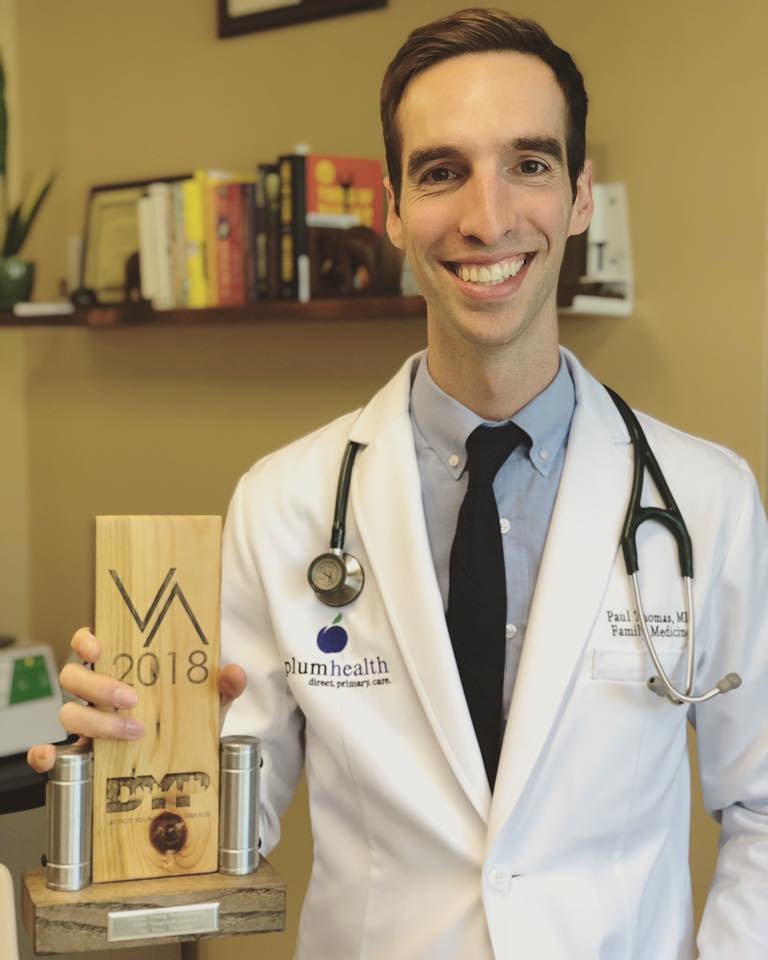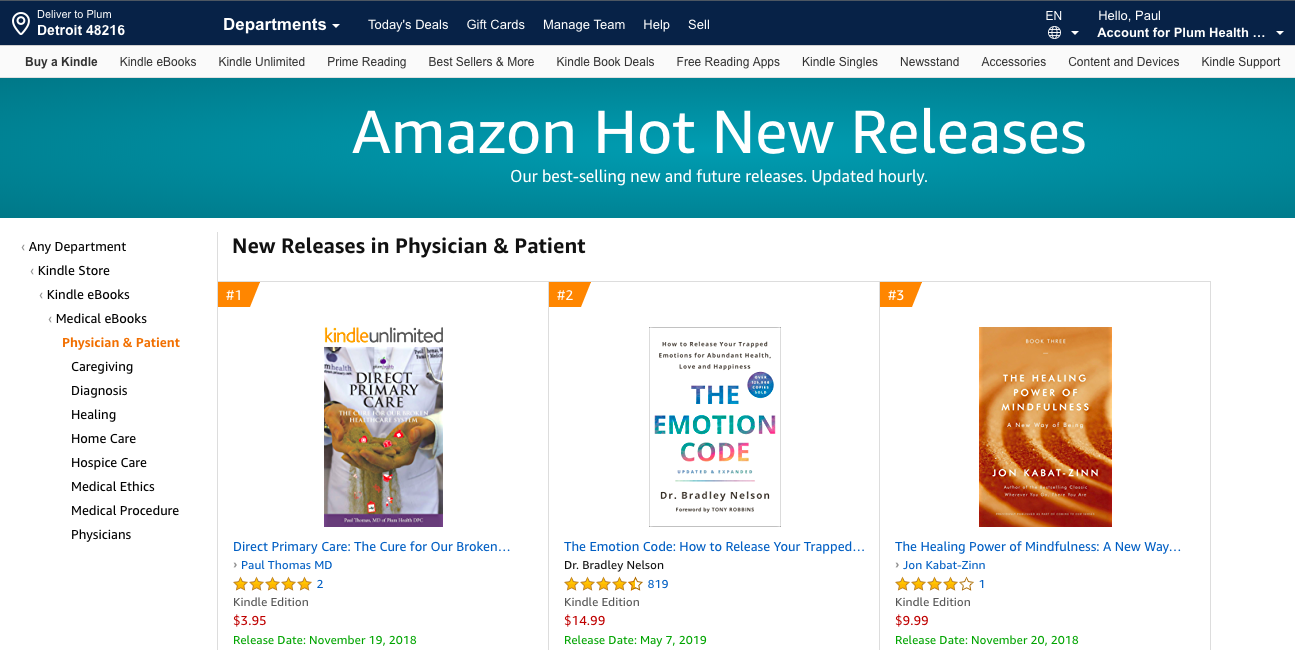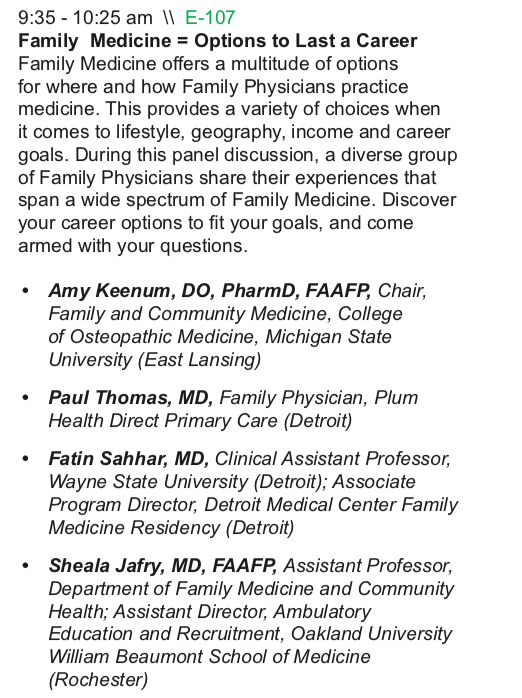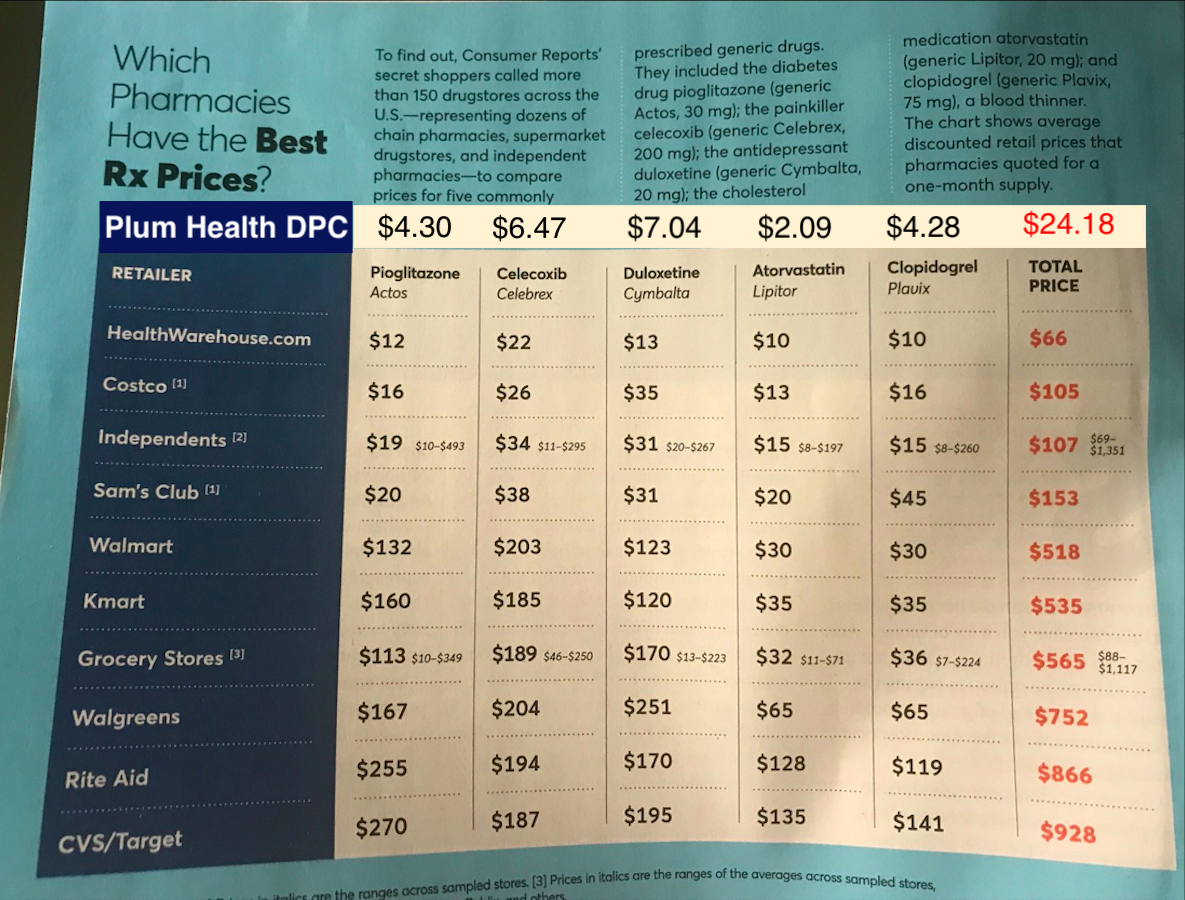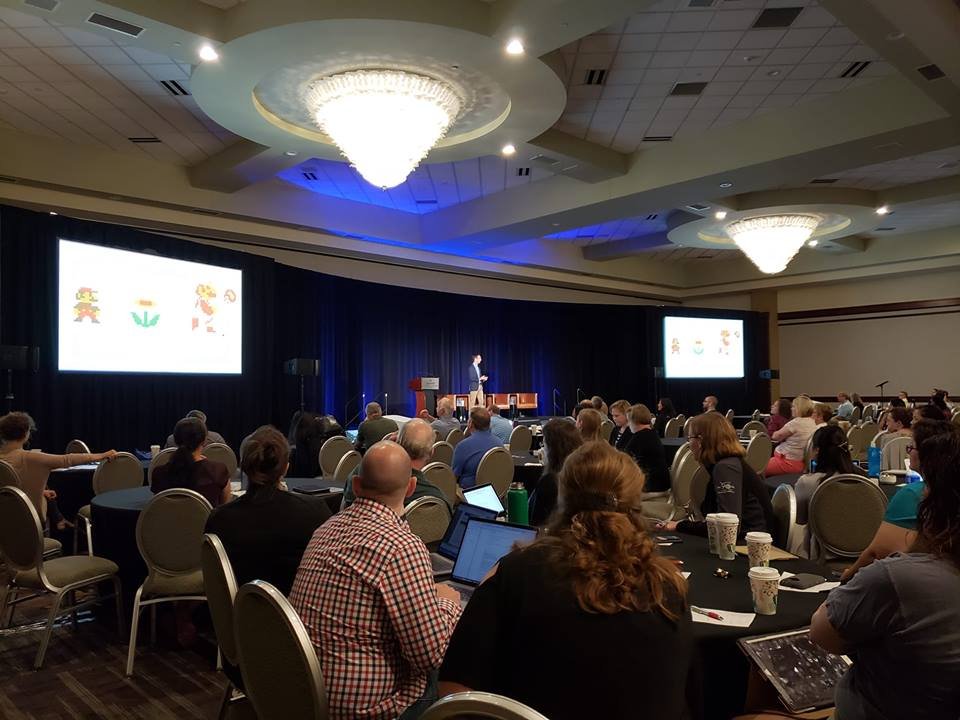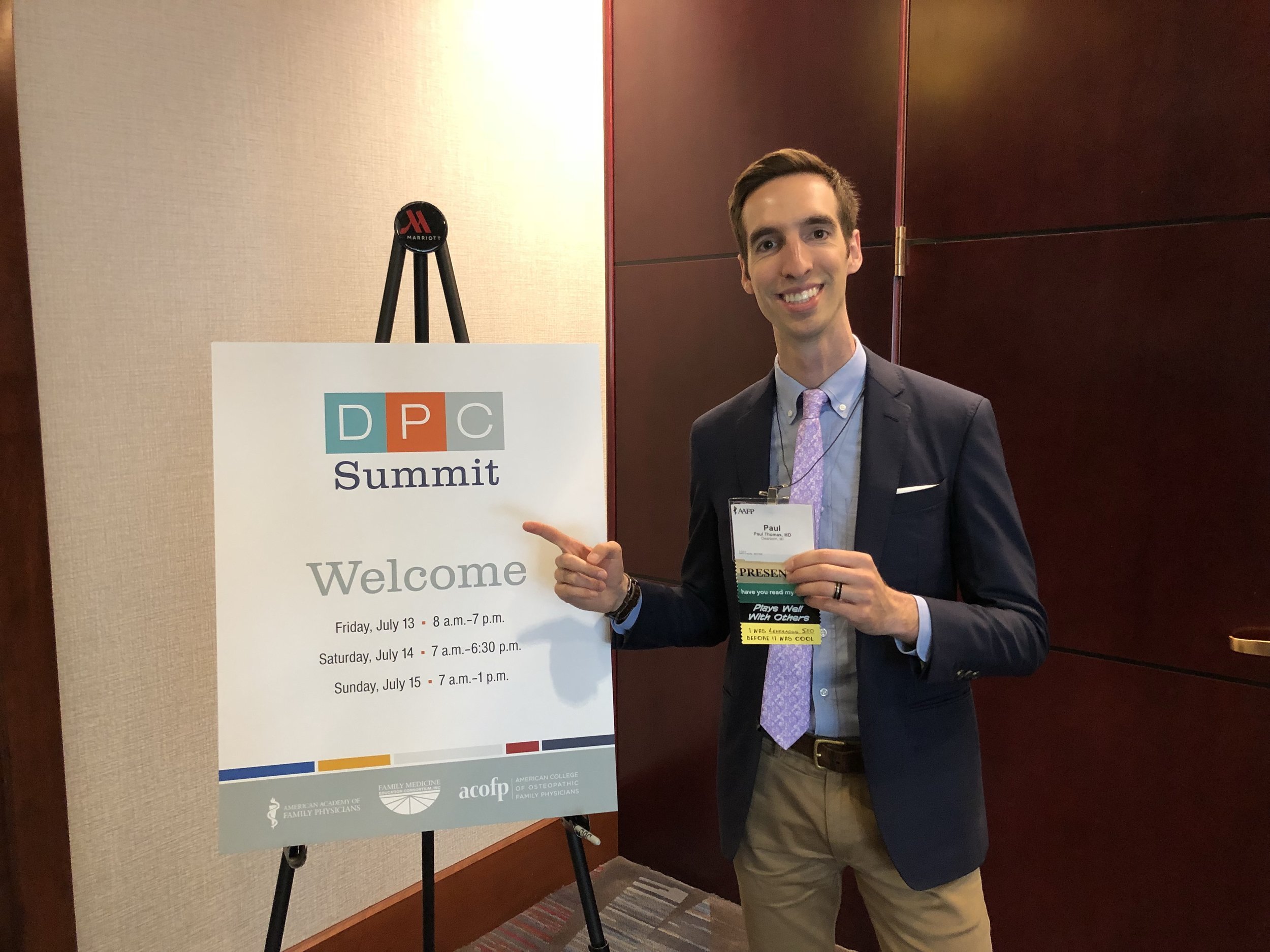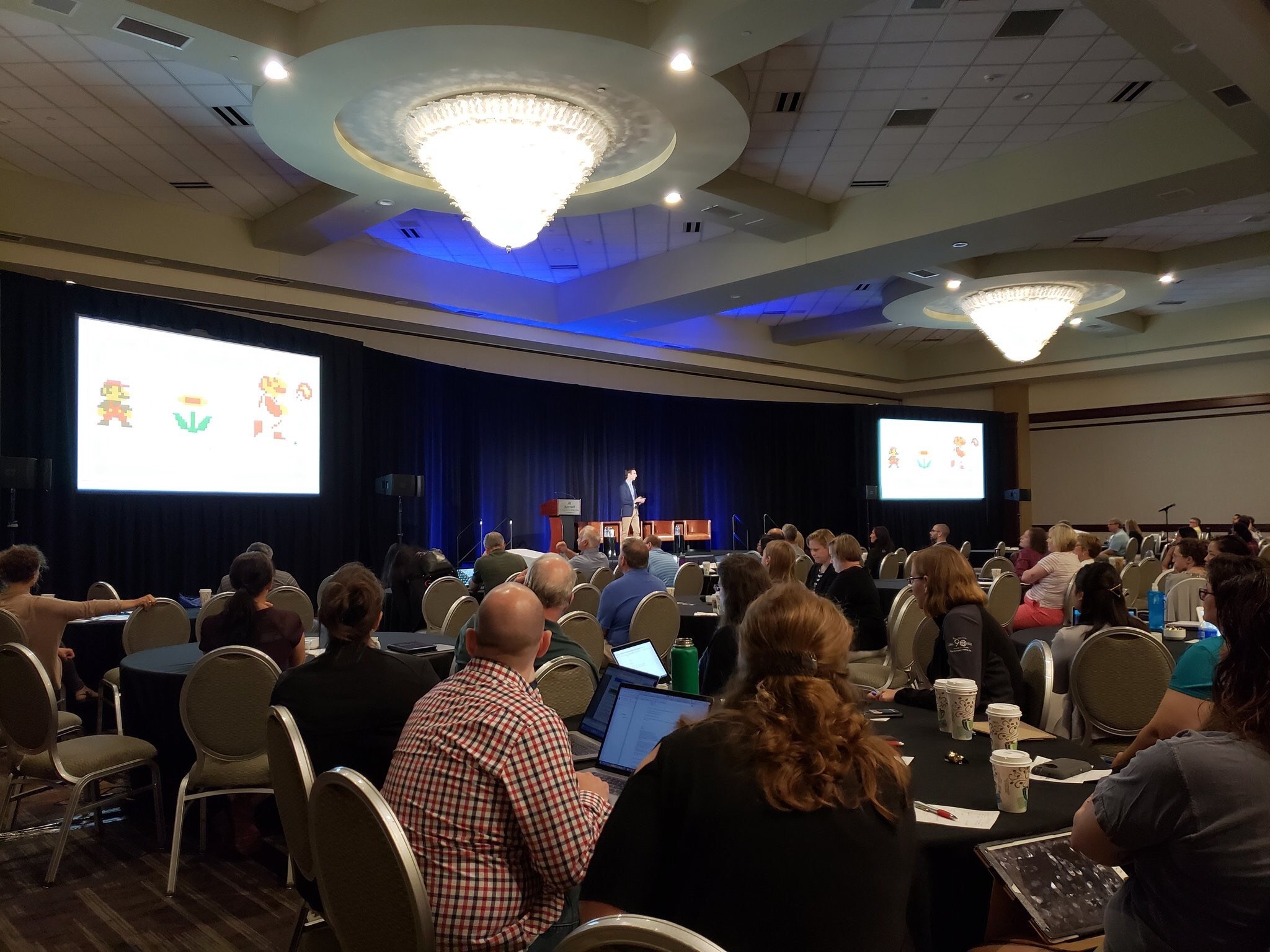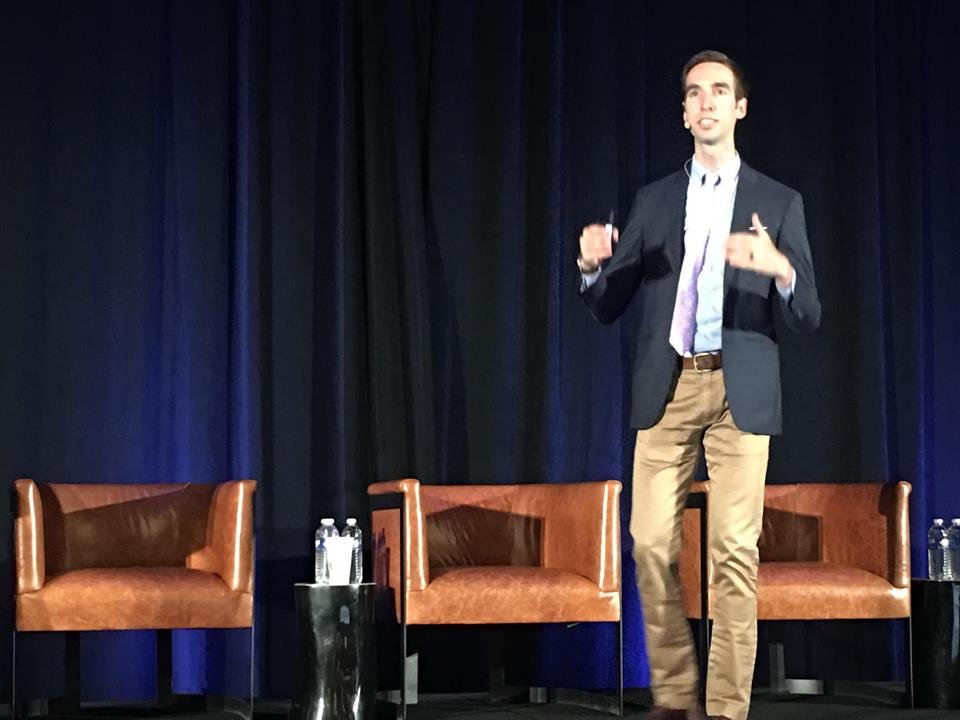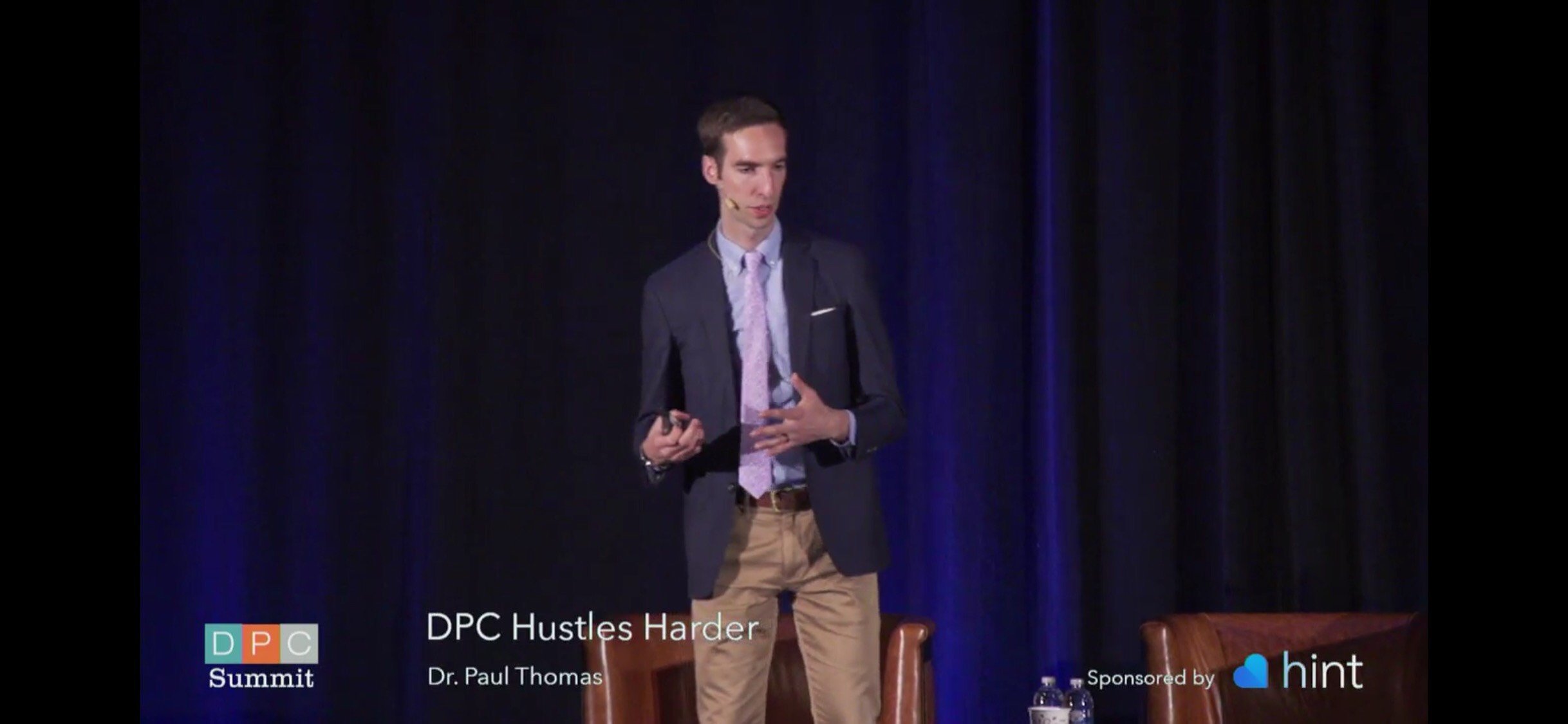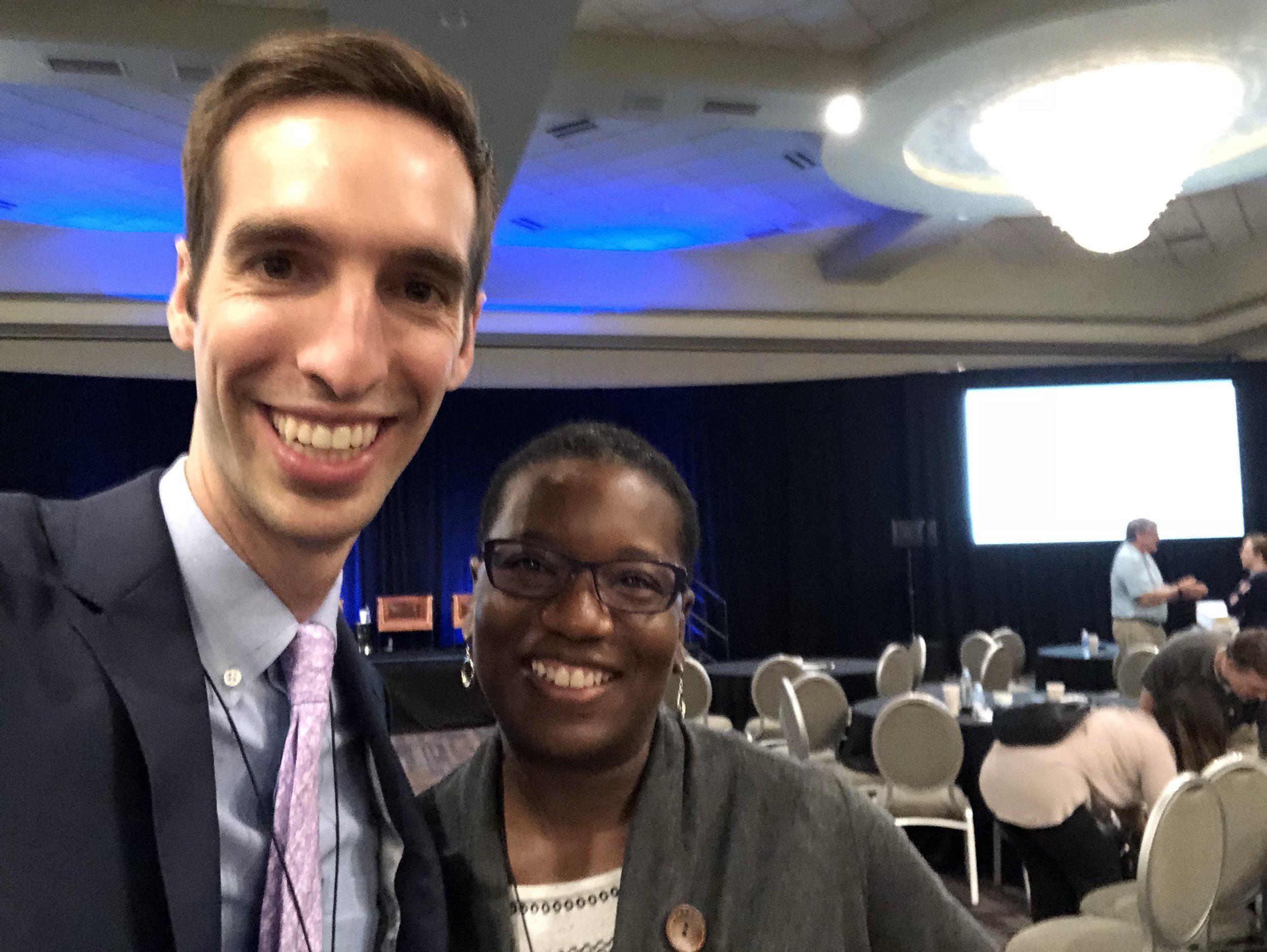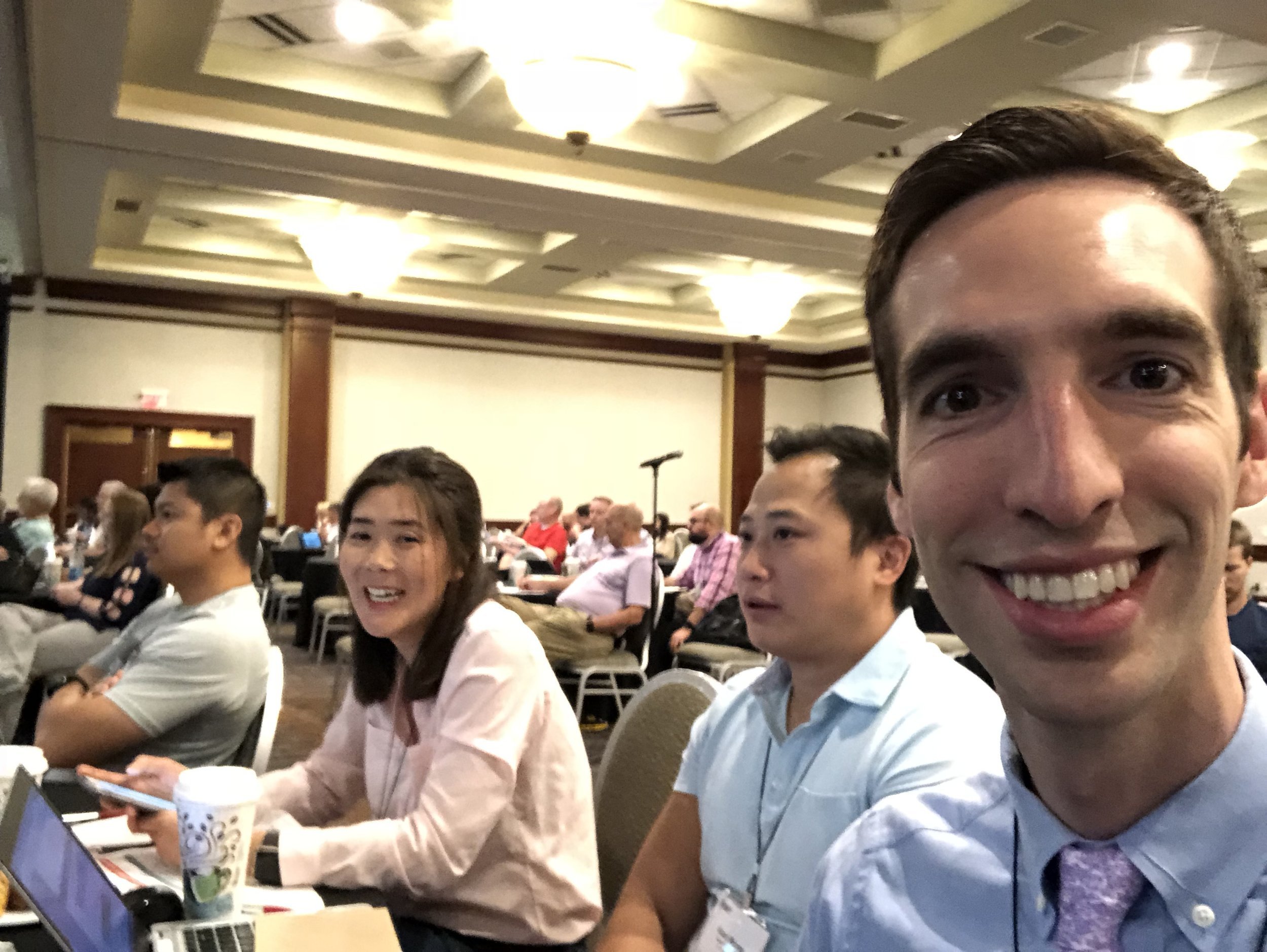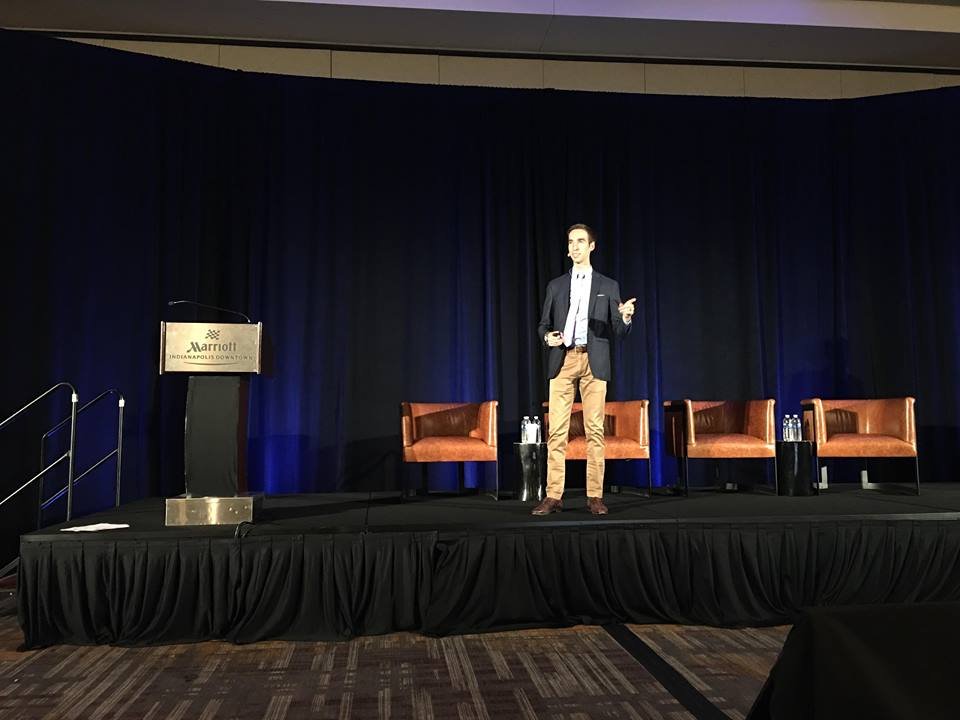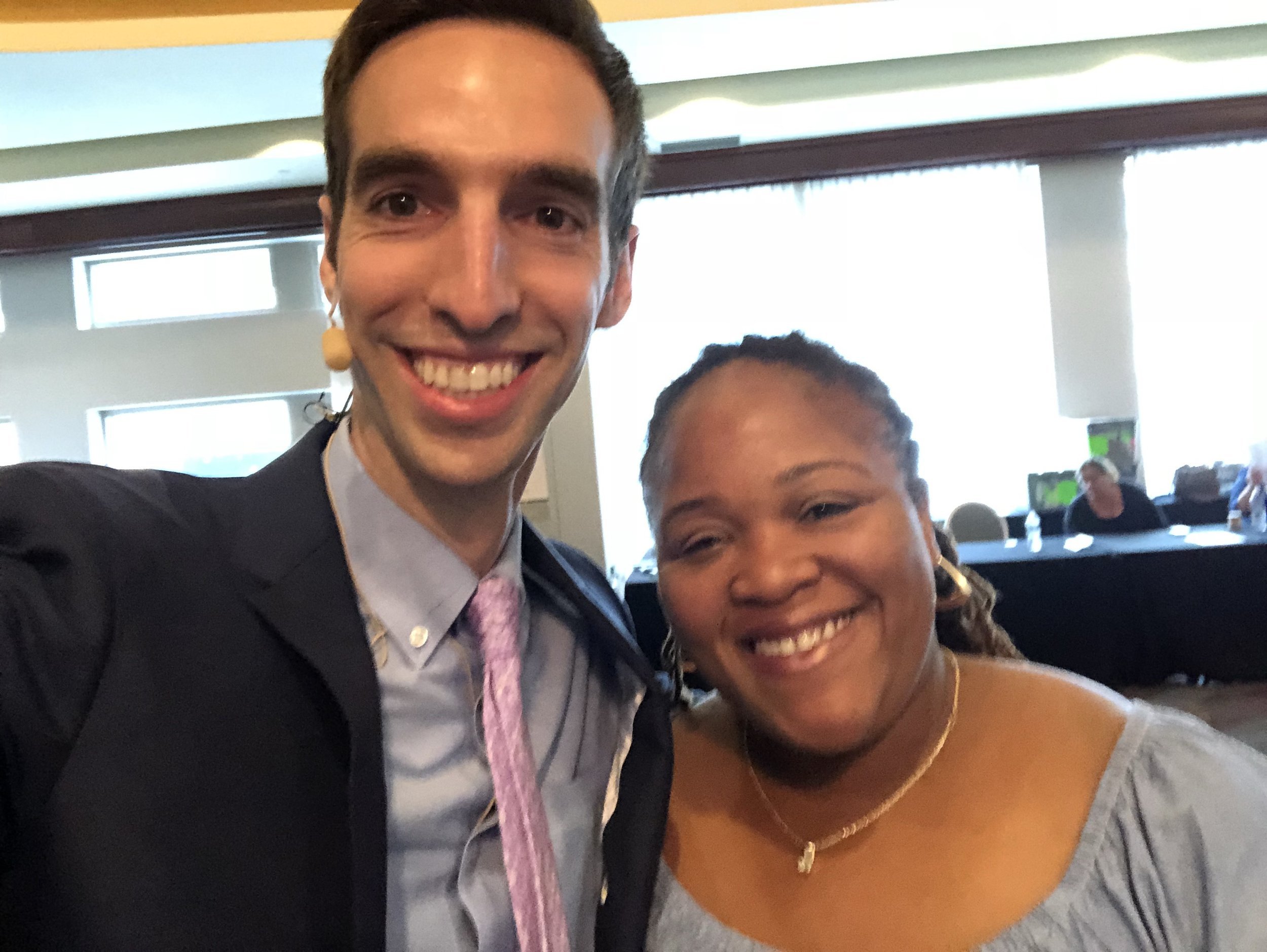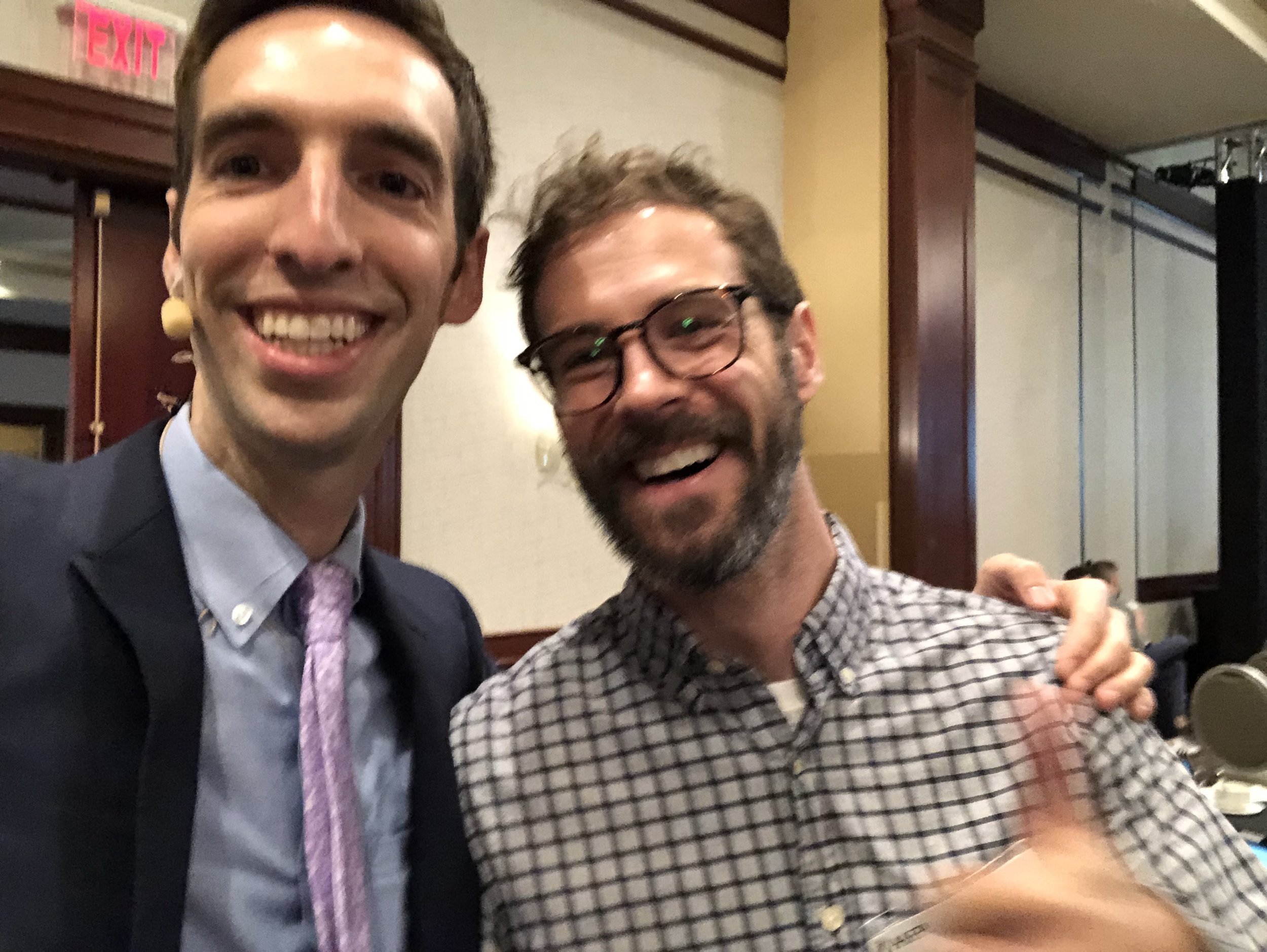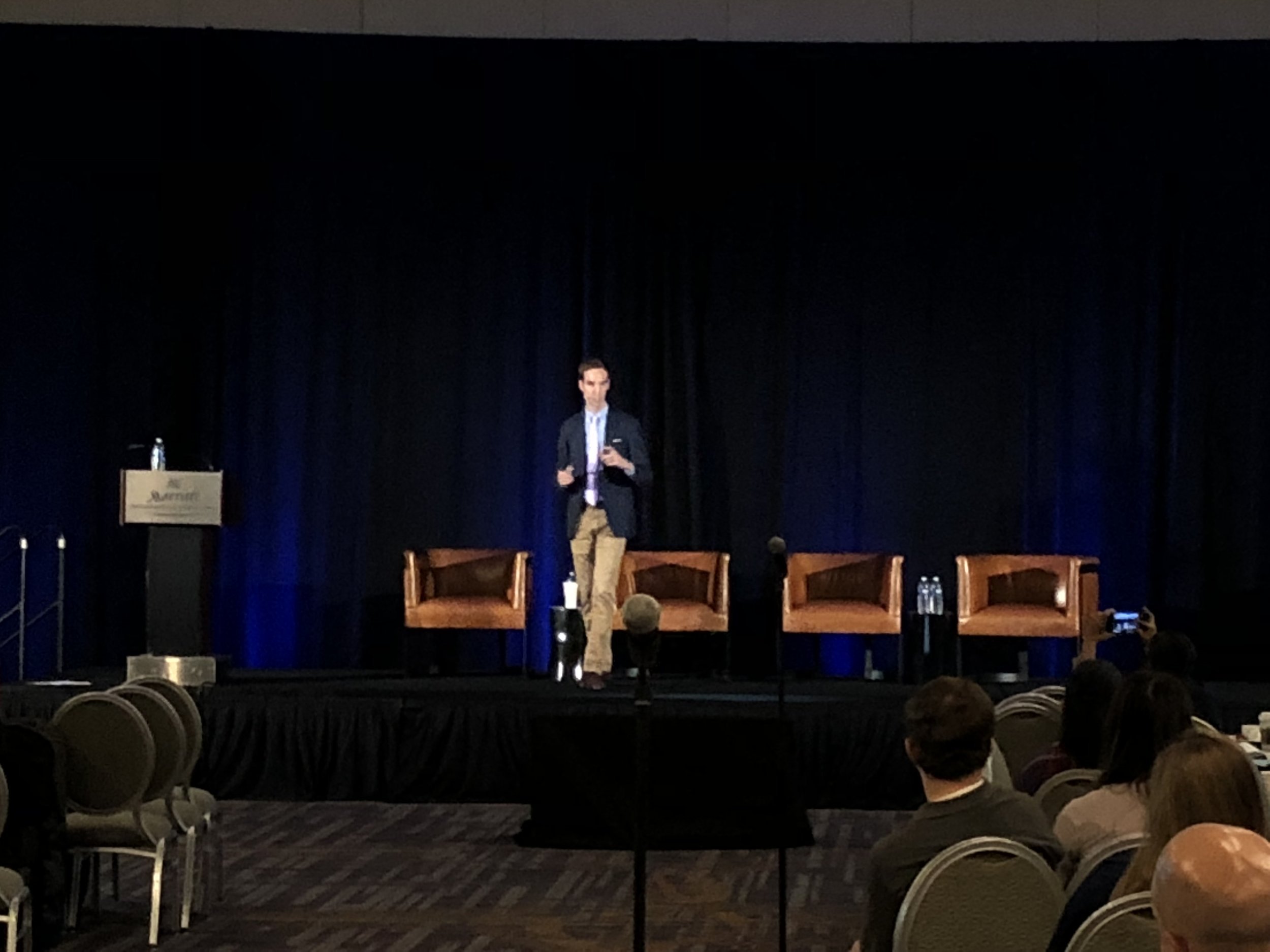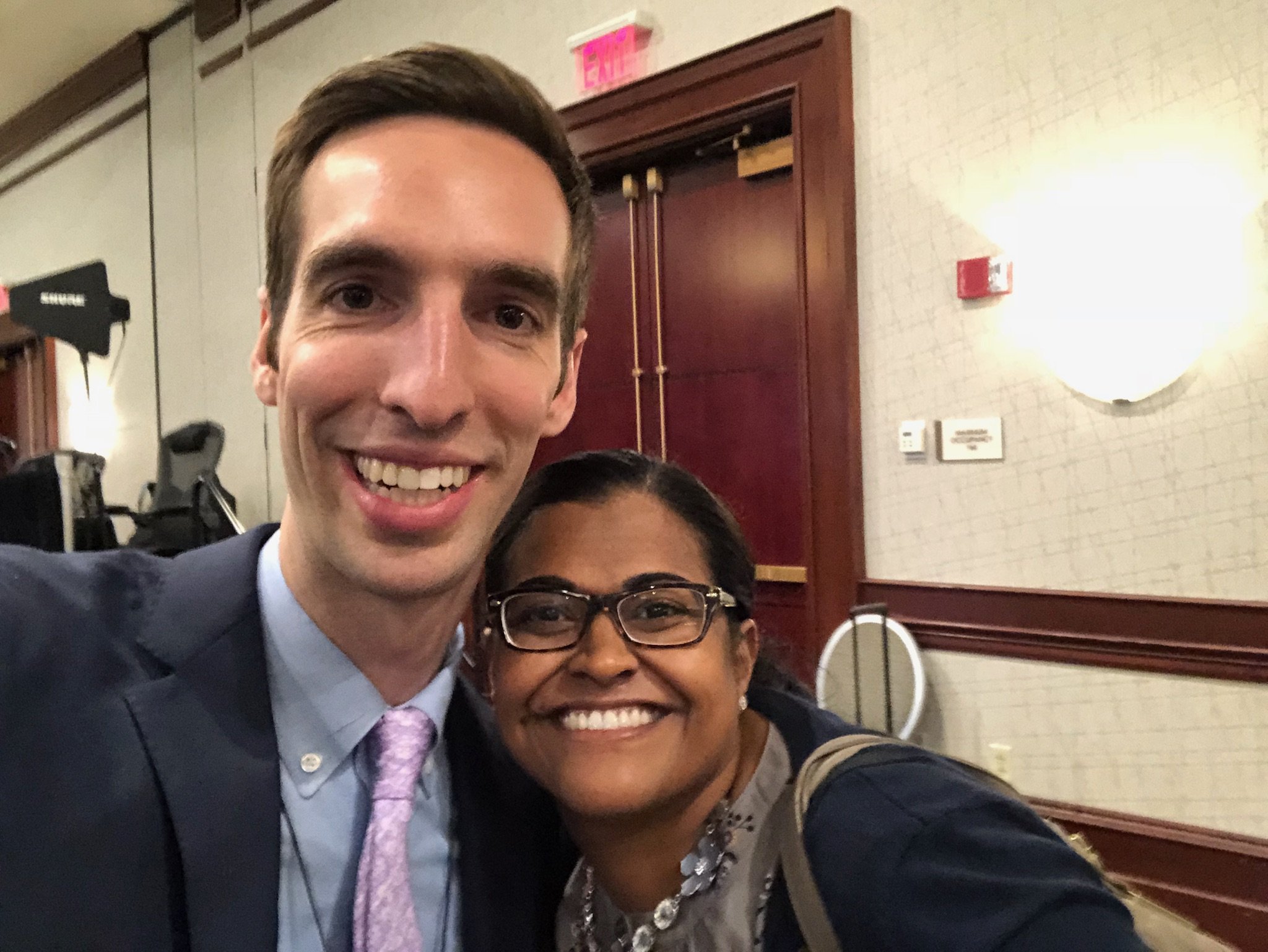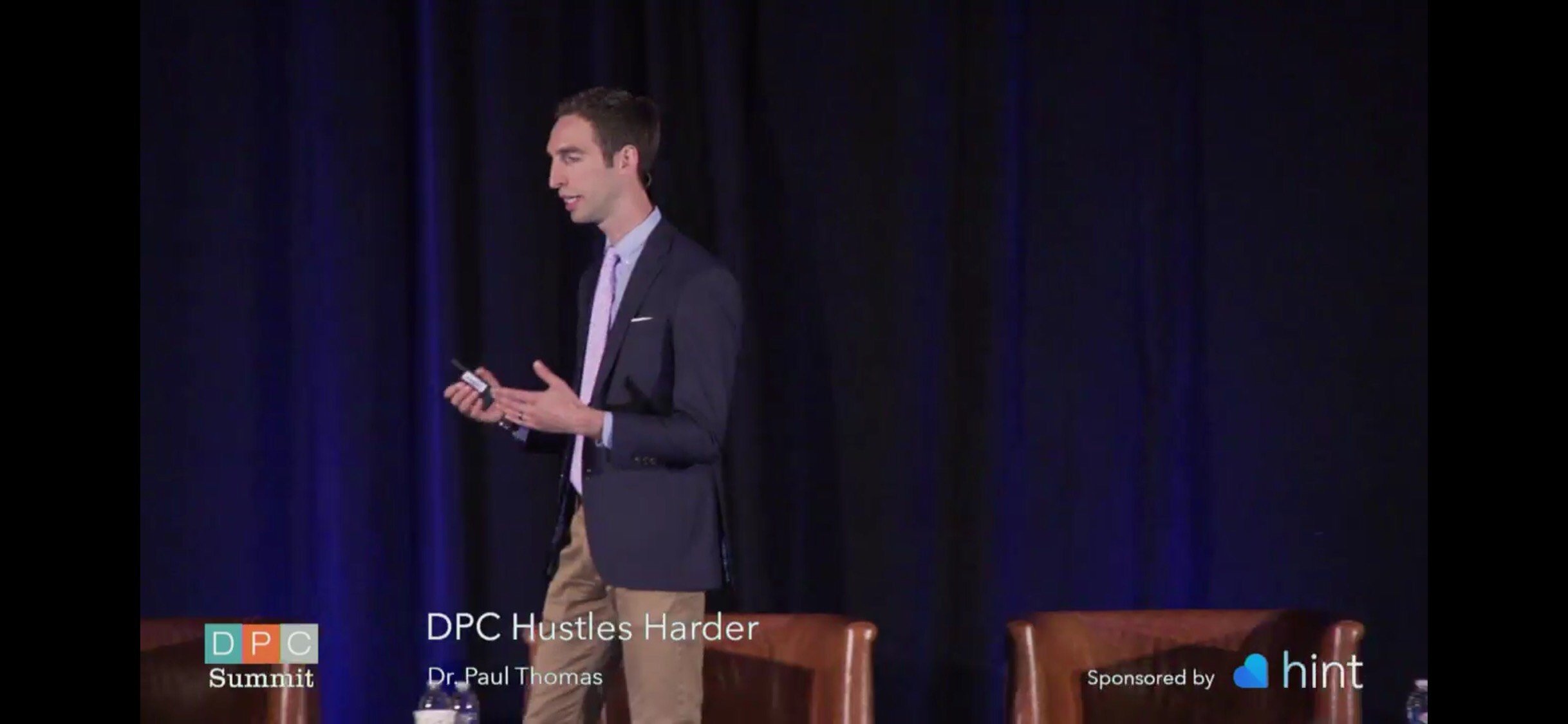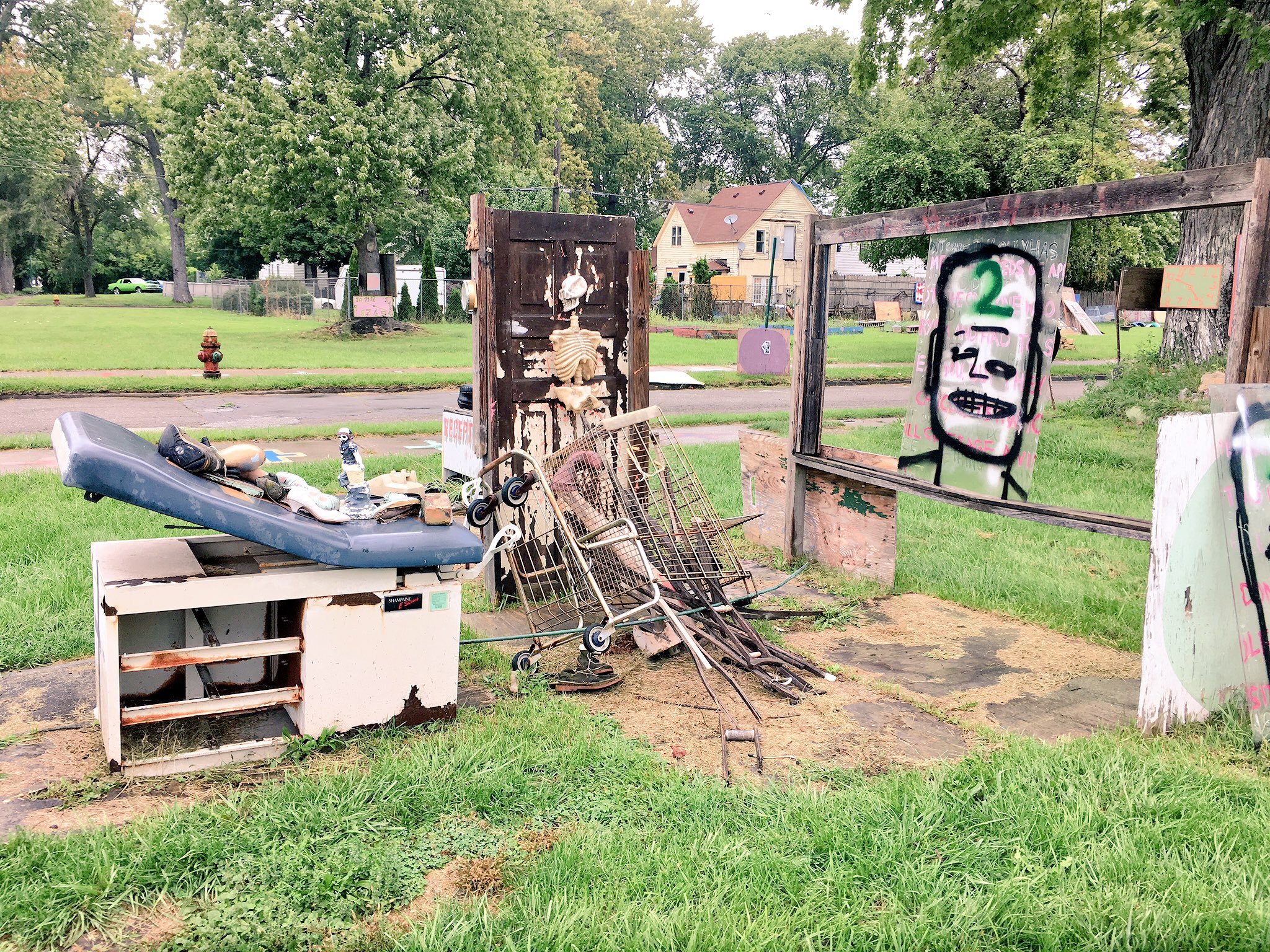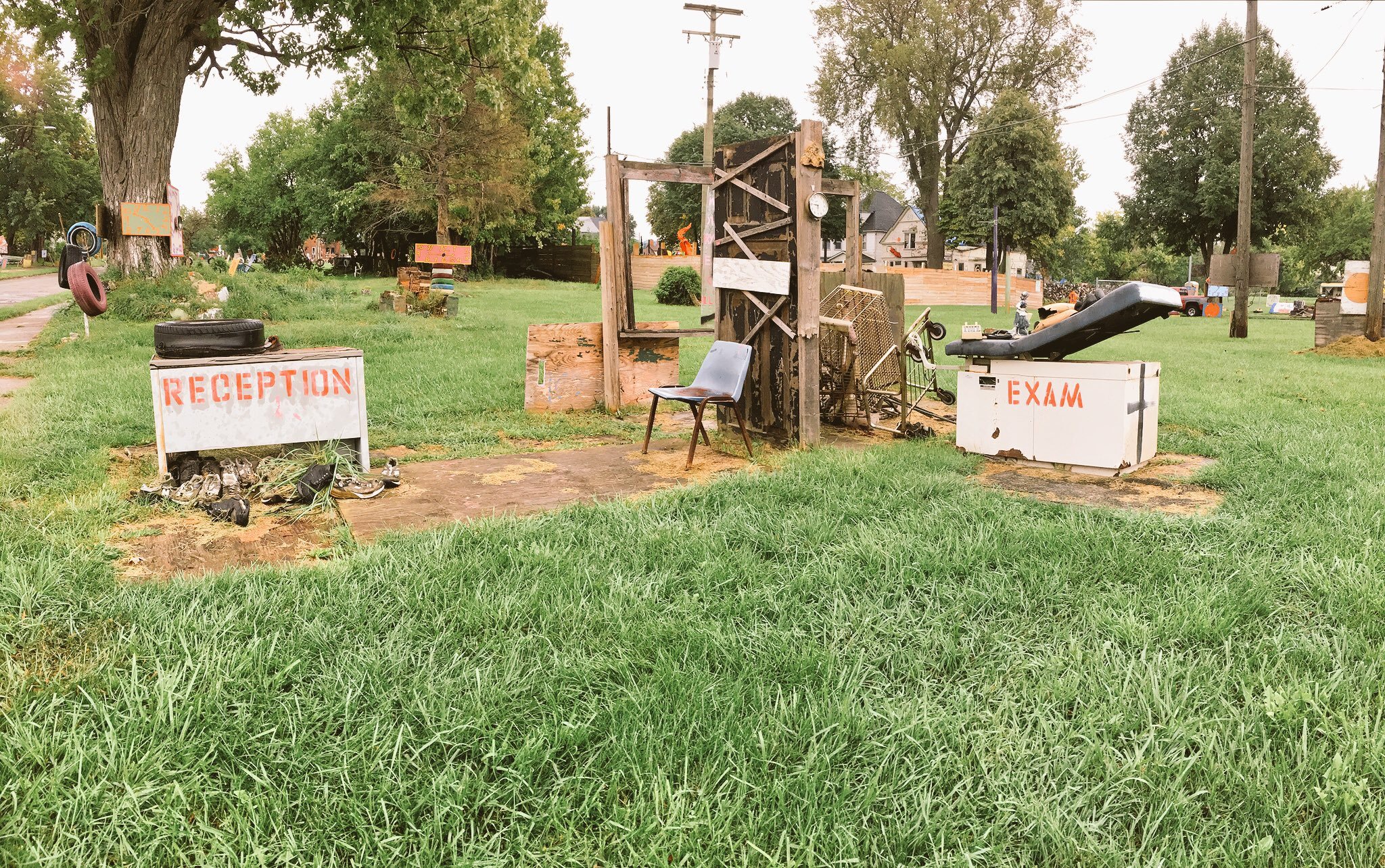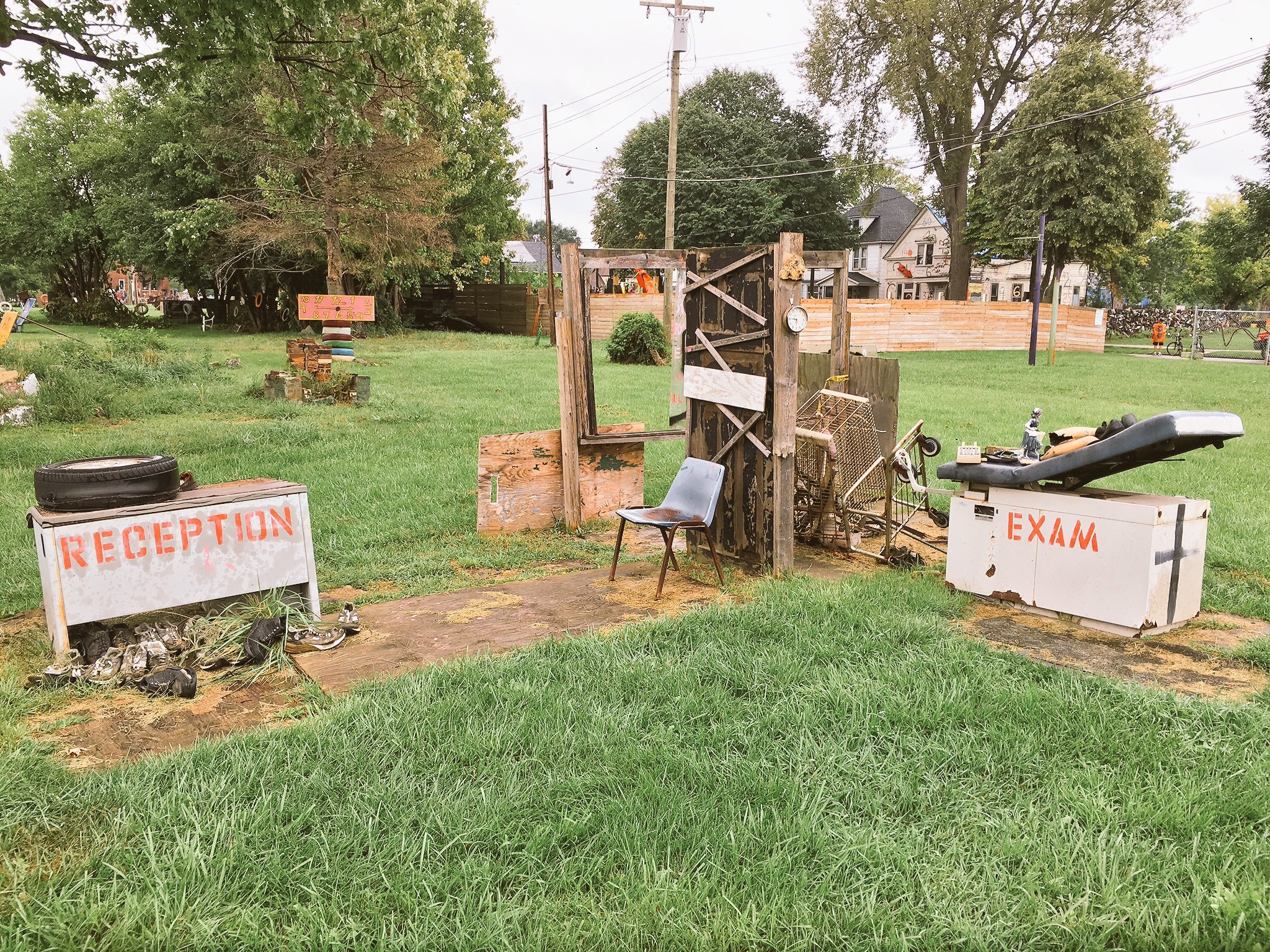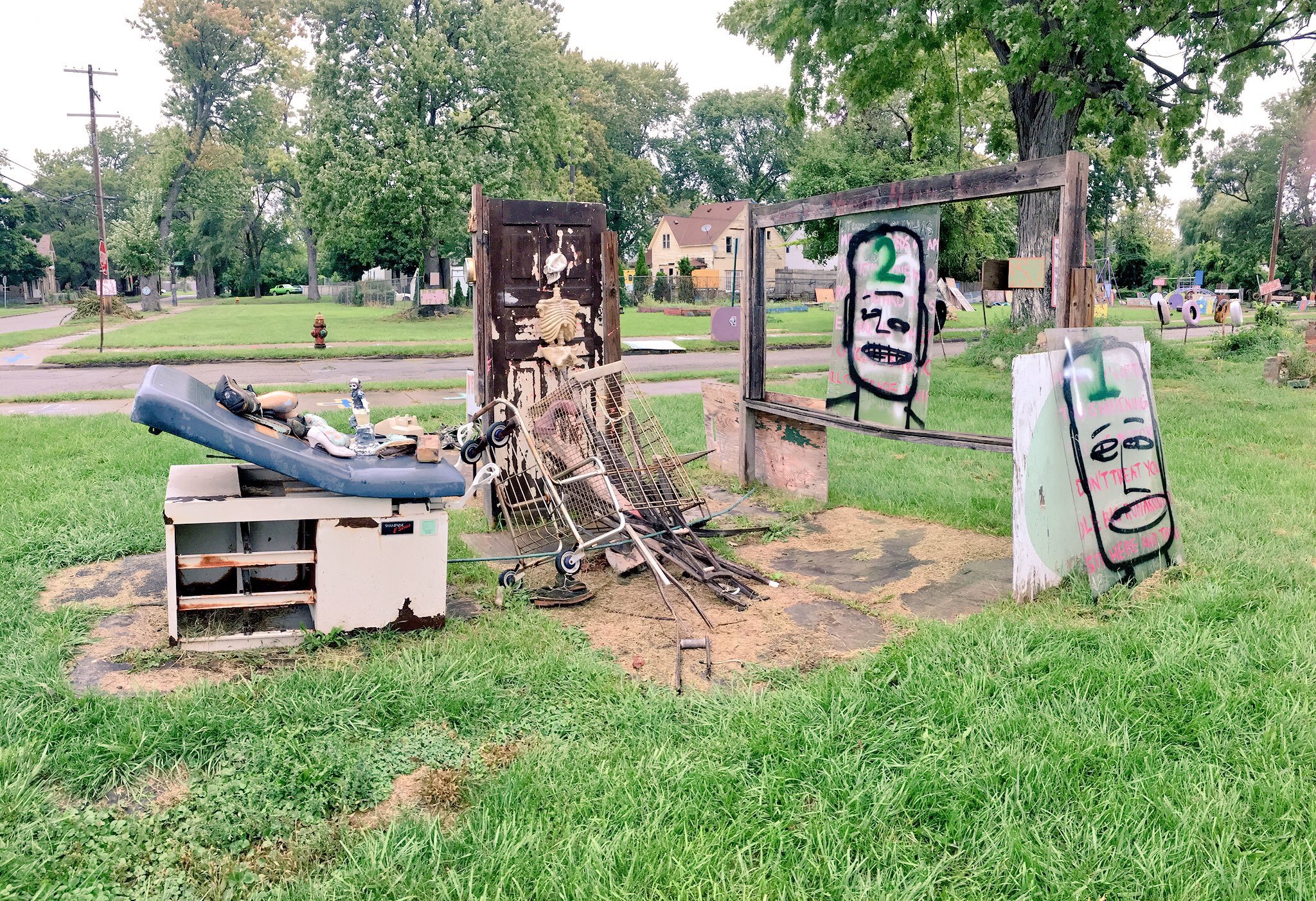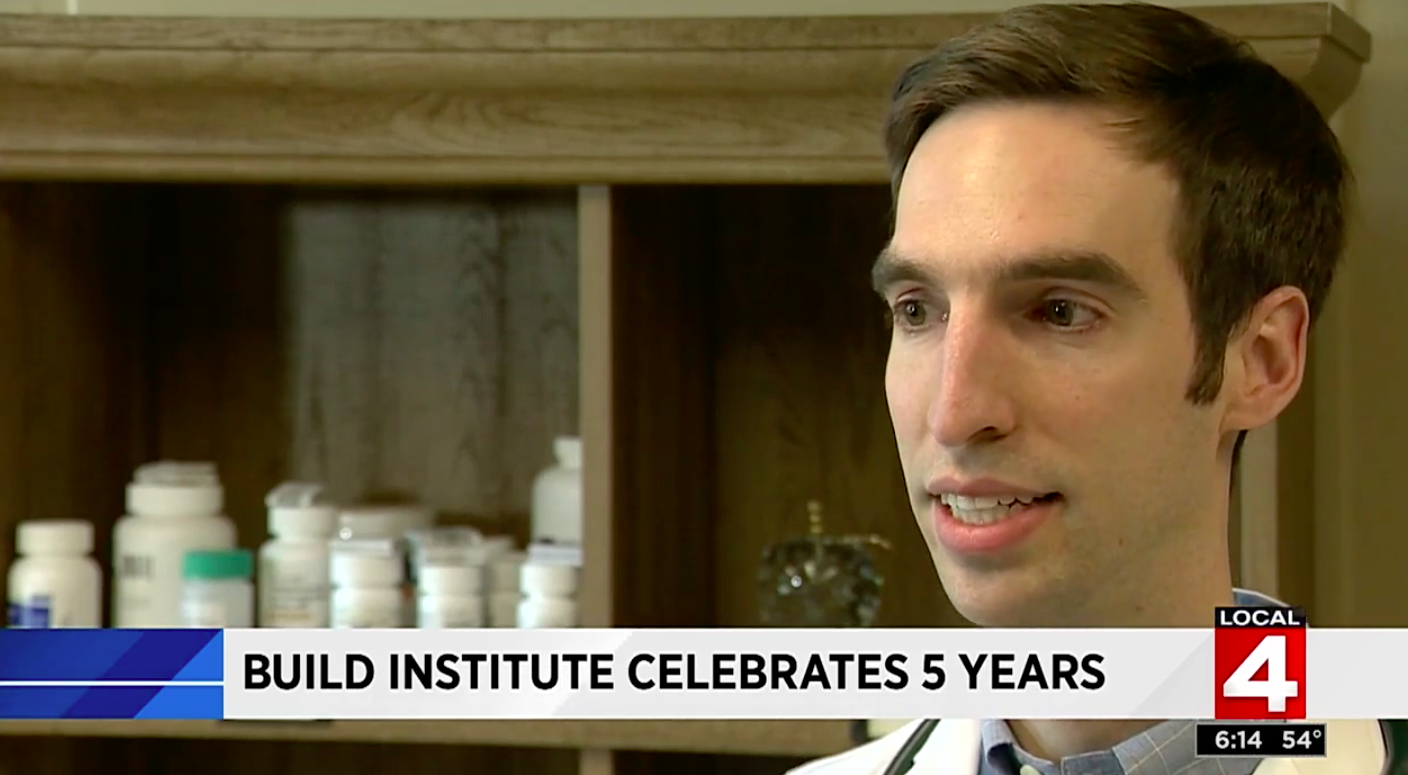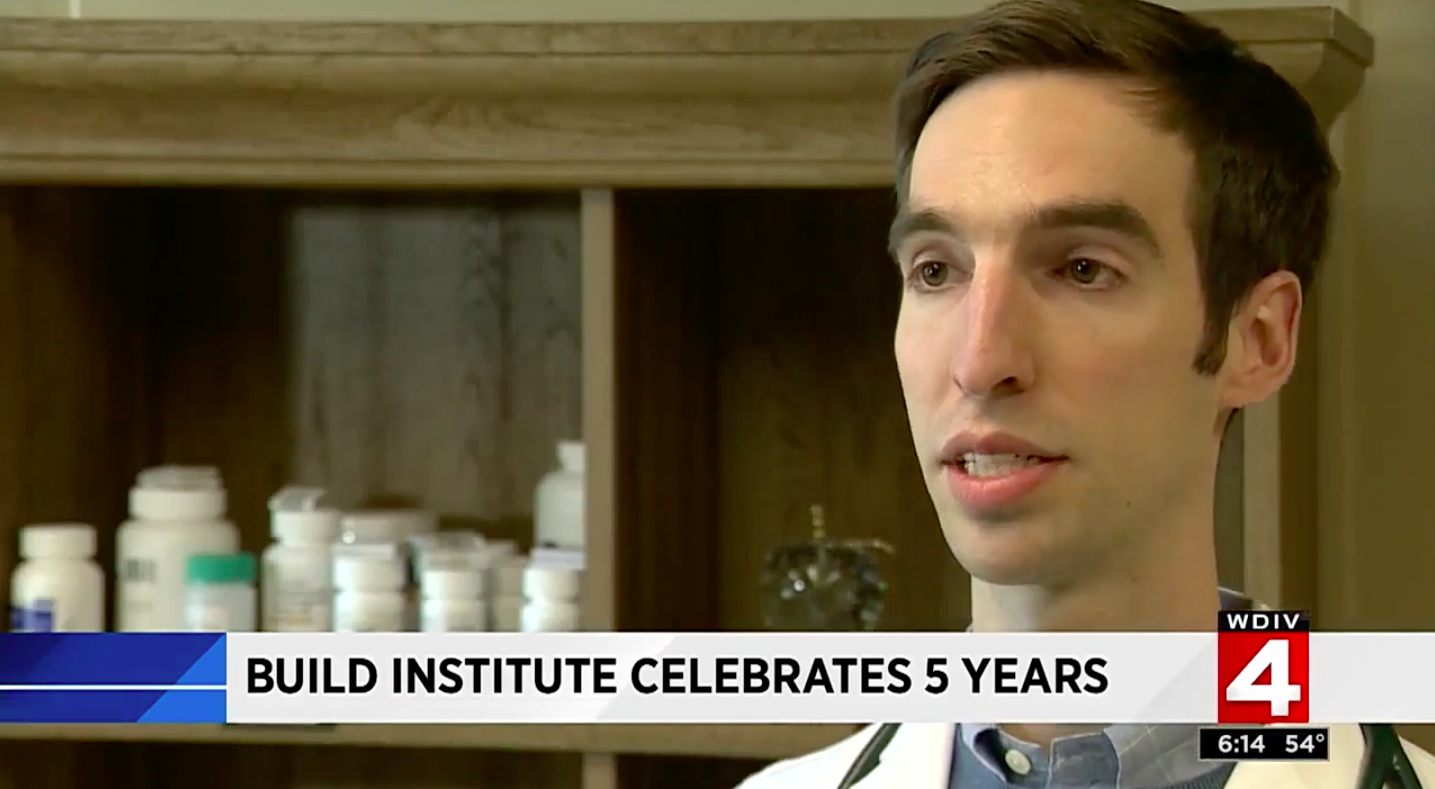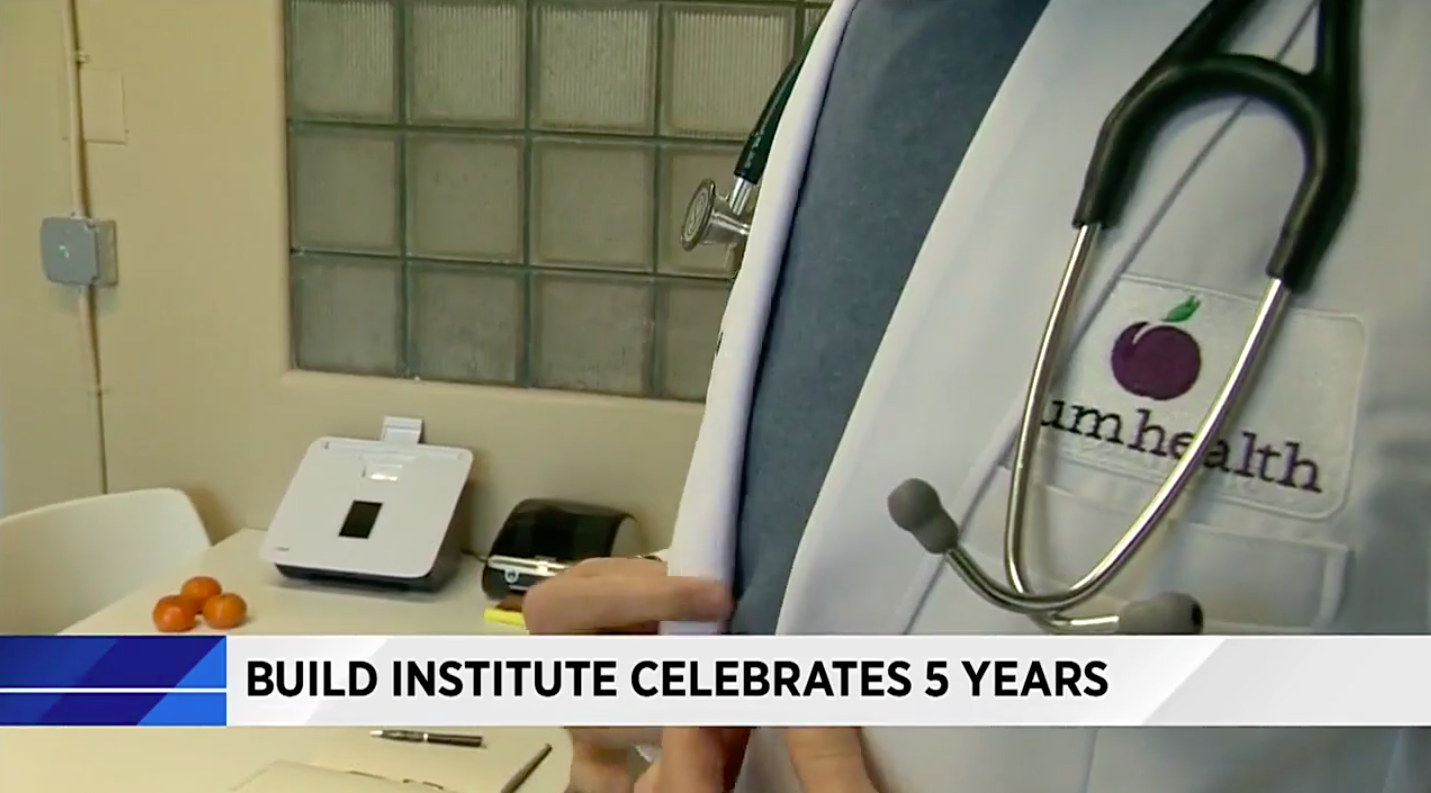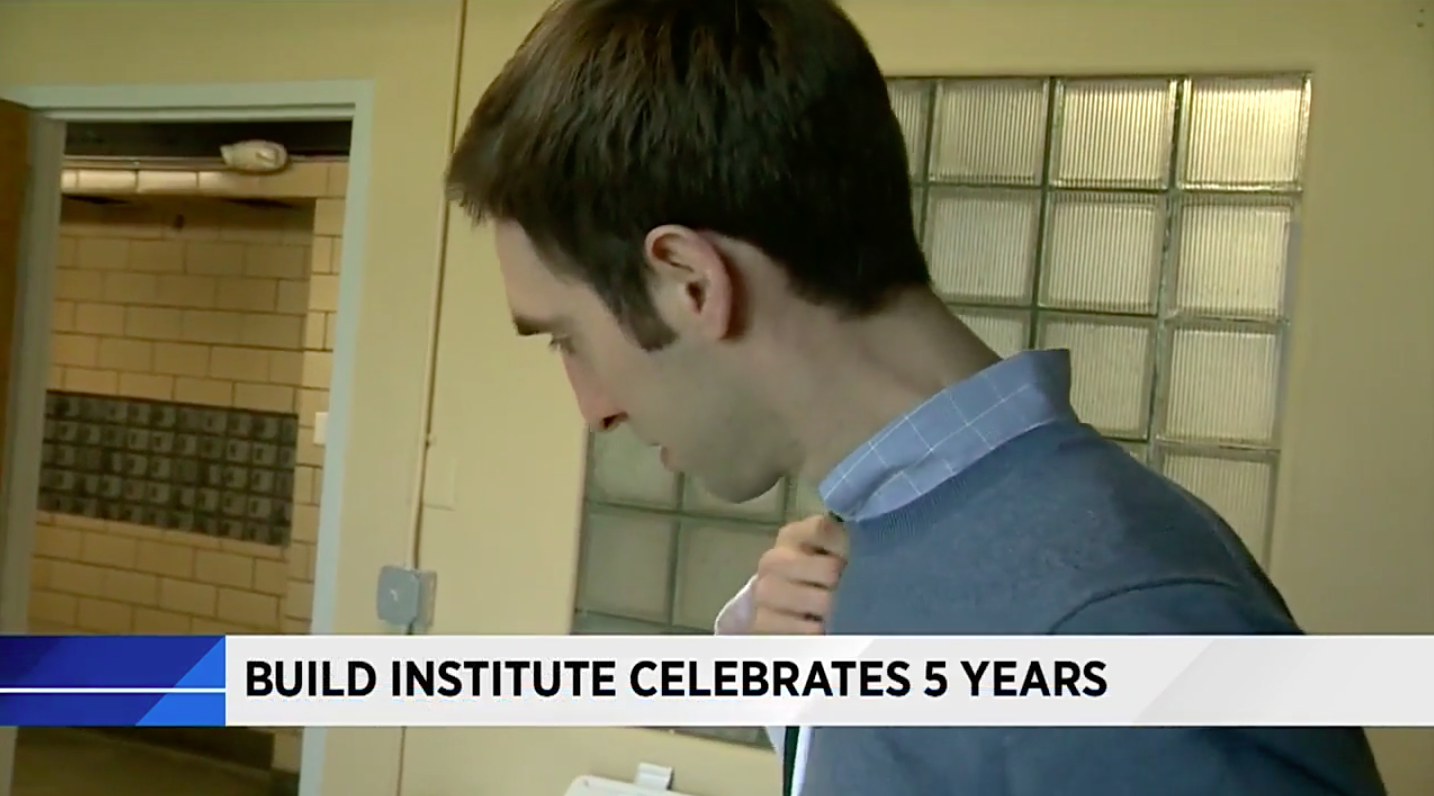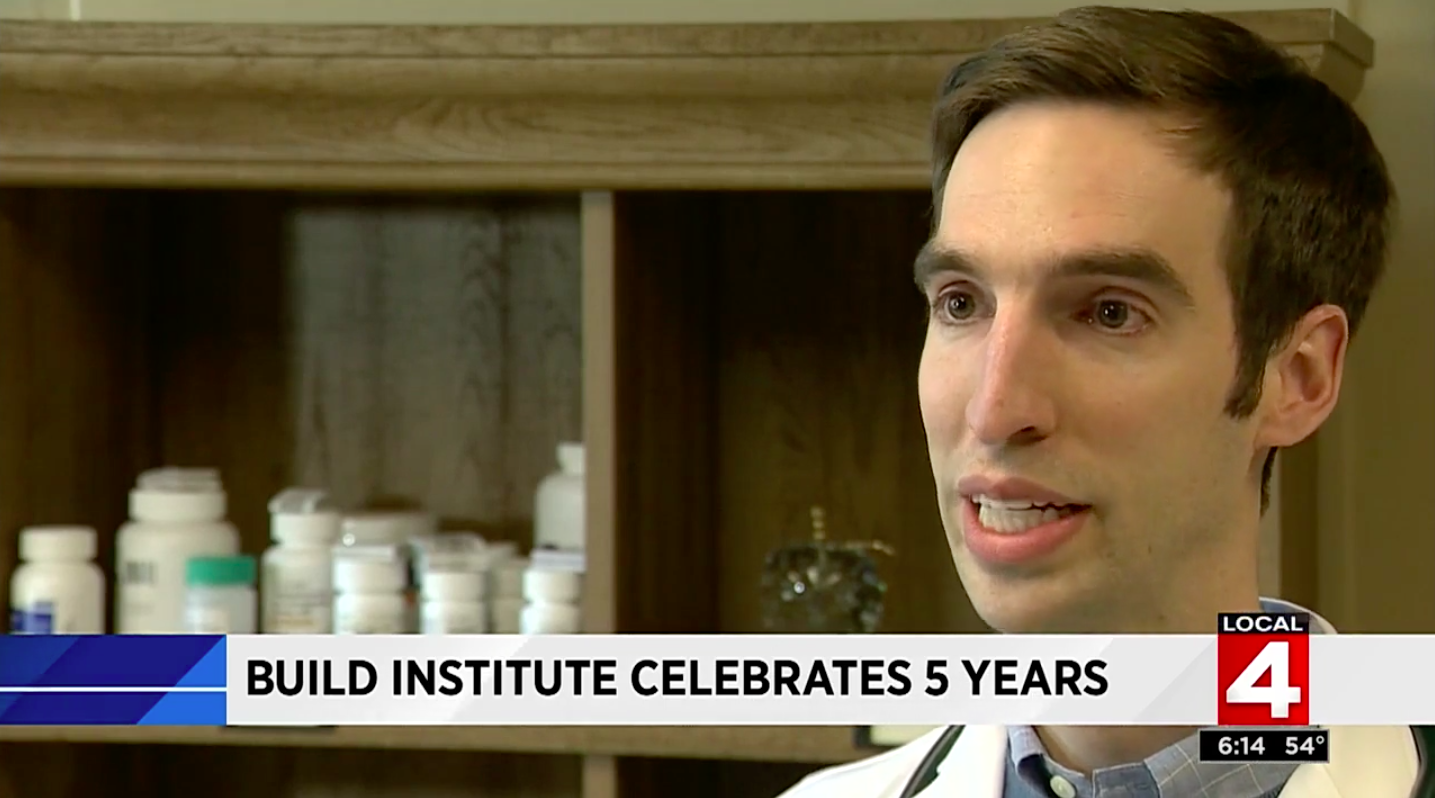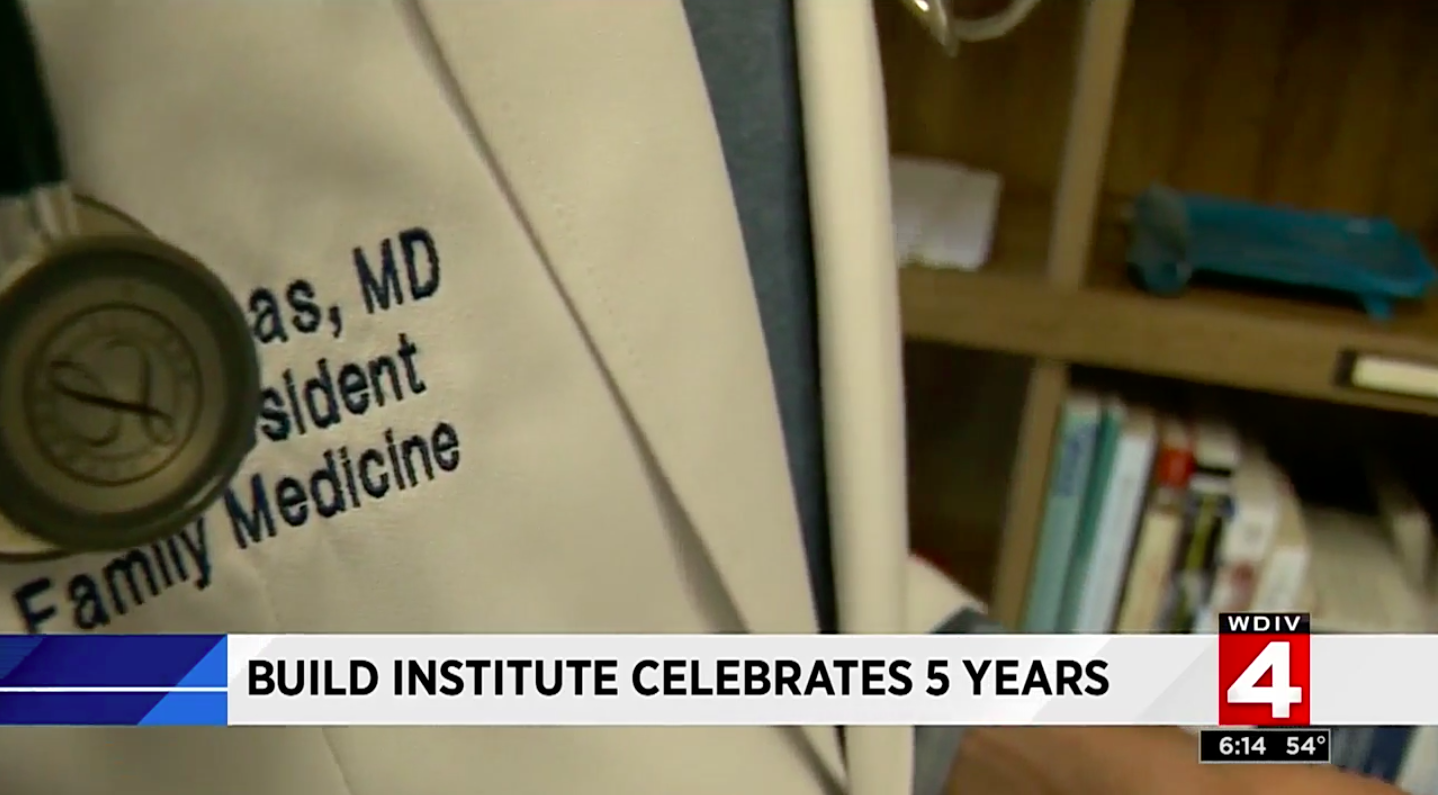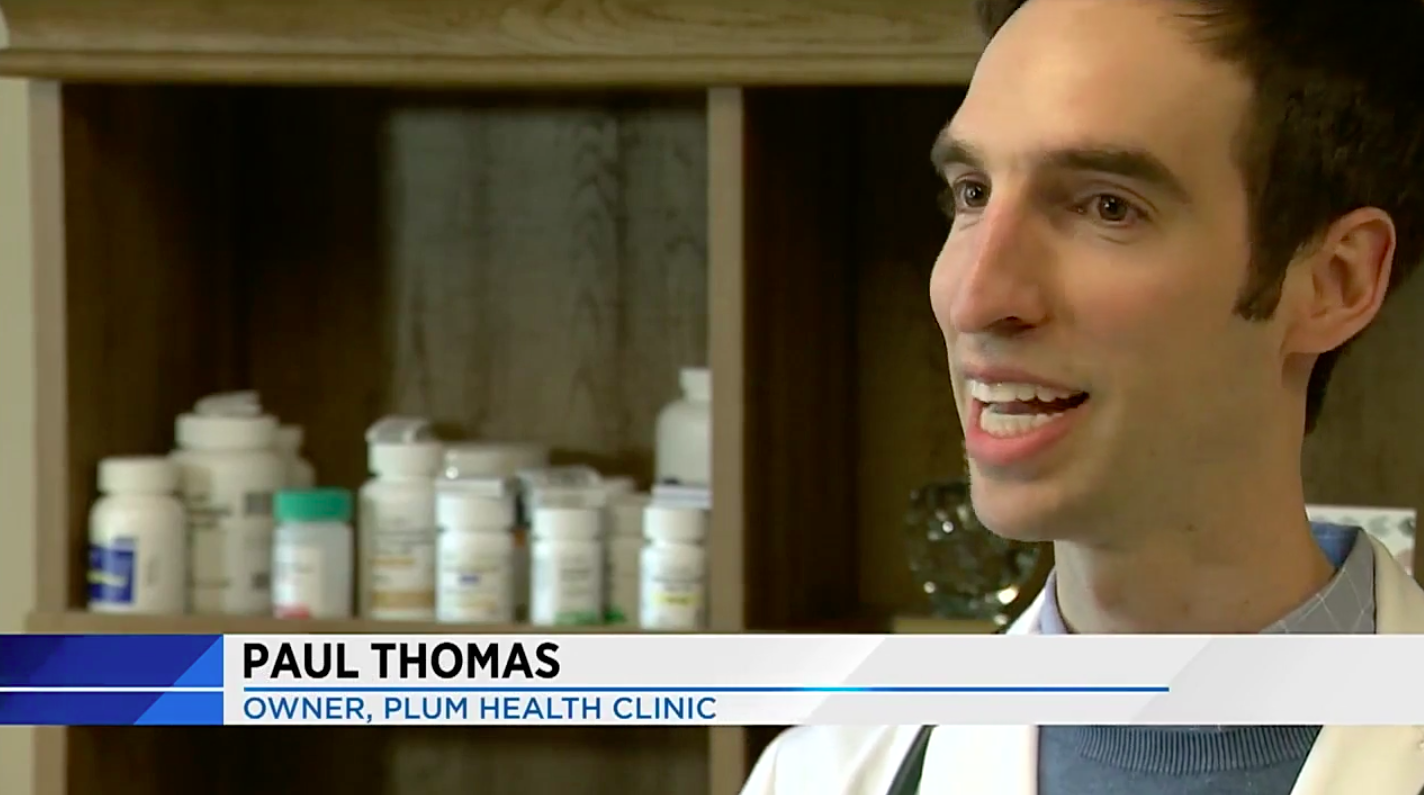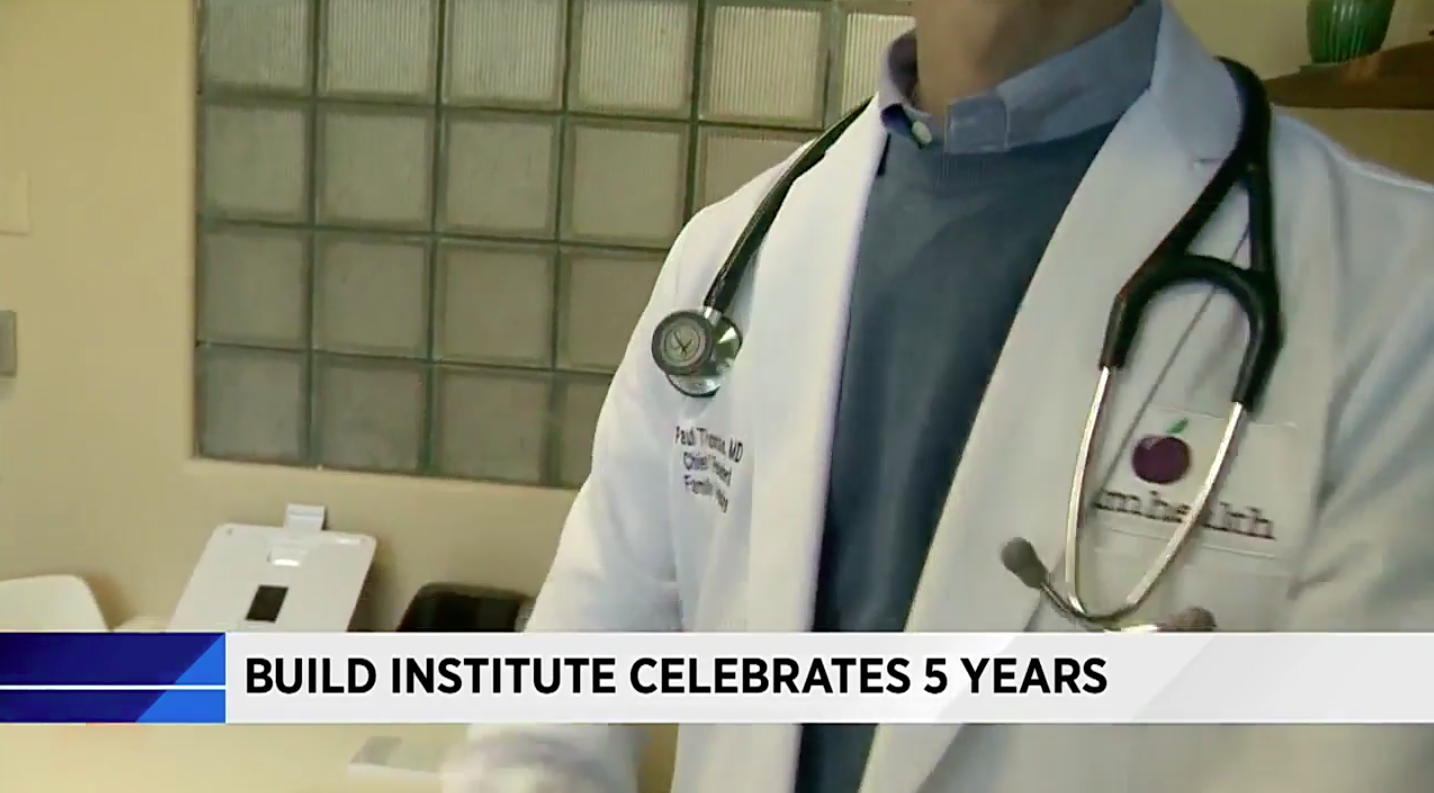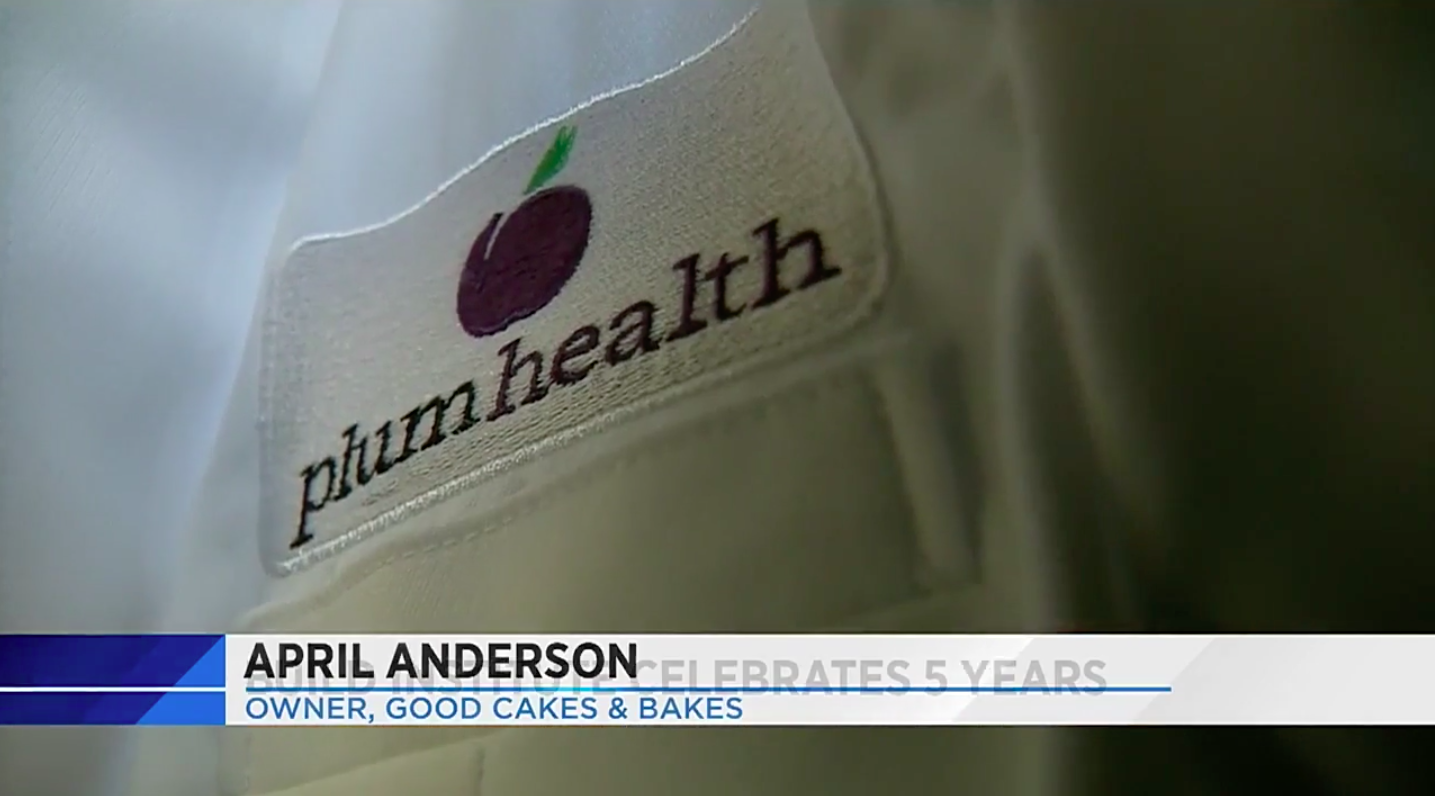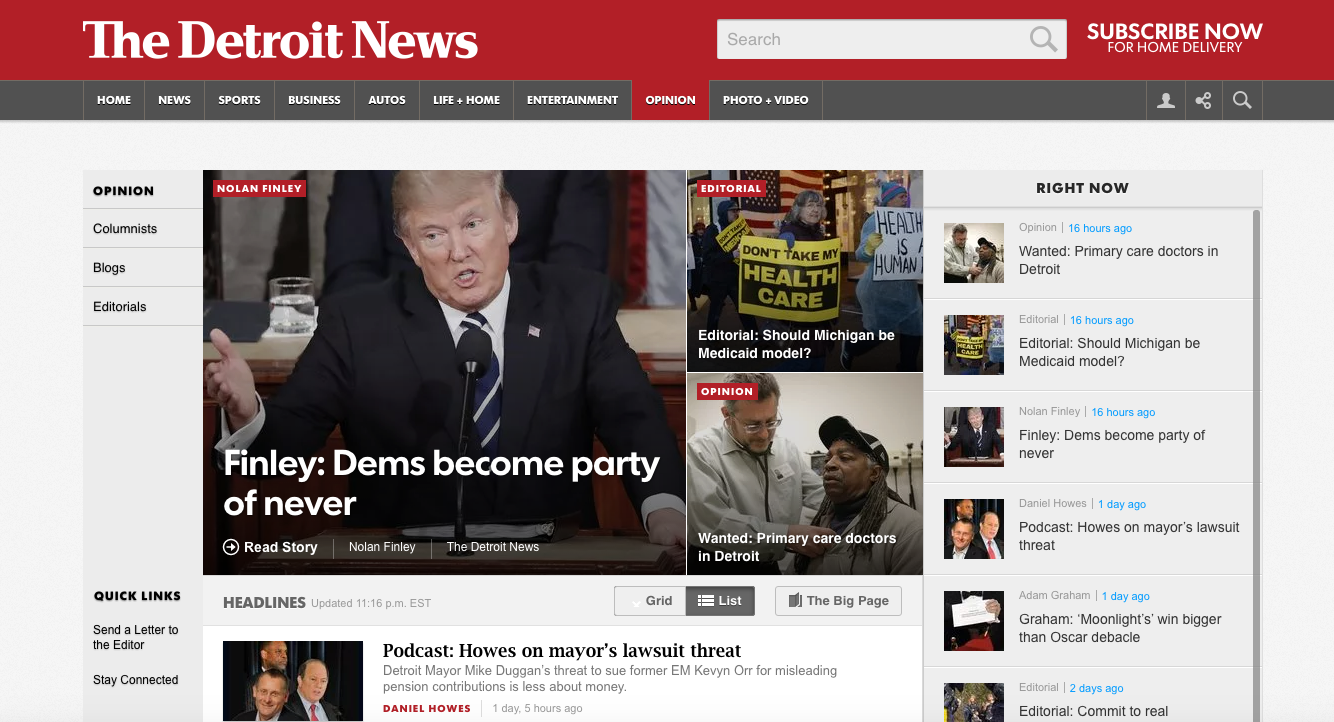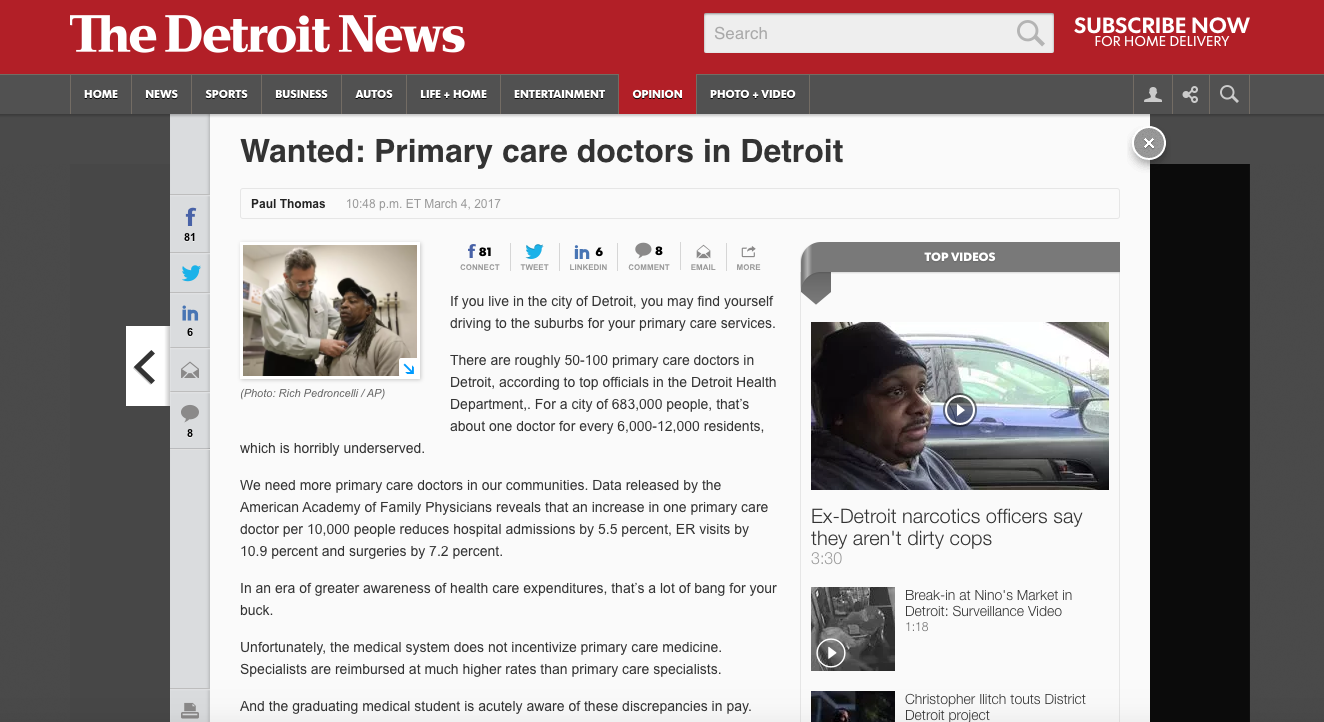Plum Health Blog
Open Enrollment in Detroit Michigan
We wrote an Opinion on open enrollment, and how it upholds the bottom line for insurance companies, rather than protecting the health of every day Americans.
You see, if you miss the open enrollment period, you can be excluded from health insurance coverage for 12 months, which will reduce your ability to have access to healthcare resources.
Plus health insurance plan prices are often exorbitant, forcing folks to pay hefty deductibles before any "coverage" from the health insurance company kicks in.
Finally, it's a mistake to tie health insurance coverage to employment - as we've seen with this pandemic, millions of job losses lead to millions more uninsured, and this is horrible considering that the job losses are due to a pandemic that leaves folks vulnerable to high cost hospitalizations.
I have to give a big thank you to my co-author Geoffrey Ginter a 3rd year medical student at Wayne State University School of Medicine. Also a big thank you to the editorial staff at The Detroit News for featuring our opinion.
Plum Health featured in Excelerate America's Tenacity Tales
This week we were featured in Excelerate America’s Tenacity Tales! Here’s what they said about us:
Imagine being able to access your doctor anytime by phone, text or email. And knowing that you can get in to see him or her that very day, or within 24 hours at the longest.
Well Dr. Paul Thomas and Plum Health DPC is making this revolutionary possibility a reality for hundreds of Metro Detroit, Michigan-based patients.
The concept is specifically called Direct Primary Care. It's a completely new healthcare movement, one that's so different than the system most people are used to that Dr. Paul was compelled to write a book about it.
He's also constantly invited to speak about it at large conferences and galas, and was even invited to the White House earlier this month as a guest of Health and Human Services Secretary Alex Azar.
Read more about Dr. Paul's incredible entrepreneurial journey in an all-new healthcare space.
What’s the obstacle that you’ve overcome that you’re most proud of?
This has been a big year!
Publishing the book, "Direct Primary Care: The Cure for Our Broken Healthcare System", has been a big accomplishment for me.
It was not difficult to write the book, but having the intentionality to move the book from a completed word document on my desktop computer to a physical product that you can buy on Amazon has been challenging, with several small obstacles to overcome week by week and month by month.
I guess it's a good metaphor for being in business—It's not hard to have a great idea, but it is difficult to have the consistency, grit, and intentionality to advance that idea every day and every week towards your stated goals.
Additionally, I'm proud of signing a lease to grow into a larger space. Our practice has grown from zero patients two years ago to over 425 patients today, so we will need a larger office to accommodate the diverse needs of our patients.
The process of signing a lease, designing an office space, and working with several different professionals to get the job done has been challenging.
What do you know now that you wish you’d known then?
Experience is the greatest teacher, and I've made several mistakes along the way.
My biggest mistake by far has been undervaluing my time and talents. I recently finished reading "Entrepreneurial You" by Dorie Clark and it talks about having the courage to charge for your services, including during speaking engagements.
I'm glad to have asked for payments for past speaking gigs, and I need to be better at valuing my time and talents with future consulting gigs and speaking engagements.
What’s your best advice to other small business owners?
If you're waiting for the perfect time to start, that moment when you feel ready, you'll never start.
One quote to reinforce this is from Hugh Laurie, the actor who played “House MD”. His nugget of wisdom is as follows: “It’s a terrible thing, I think, in life to wait until you’re ready. I have this feeling now that actually no one is ever ready to do anything. There is almost no such thing as ready. There is only now. And you may as well do it now. Generally speaking, now is as good a time as any."
Fortunately I had a really compelling reason to start my business, otherwise I may still be dragging my feet about the perfect time to launch. Anyways, a community member signed up online, before I was ready to start. He called me on a Tuesday saying "I just took my last antidepressant, so I need you to be my doctor now." That day, I ordered $100-worth of medications, including the antidepressant that he needed. The next day, I received the medications and made the house call to his rental.
All I had was my doctor's bag, my stethoscope, a blood pressure cuff, oximeter, my laptop, and the medications he needed, but I was able to meet a previously unmet need at an affordable price for this person.
So, my advice is to stop waiting and do the thing. Done is better than perfect.
What’s a typical day like for you?
I typically wake up and go for a run to get my mind and my body ready for the day. Then I make coffee and have breakfast.
Most days, I work in the office 9am - 5pm, sometimes 8am to 6pm or later depending on what needs to be done for which patients. A lot of my patients are working class folks, so they will need appointments outside of their typical eight hour shift and I do my best to accommodate them and deliver an excellent level of service.
I typically see 5-10 patients each day, and use my downtime to write blog posts, work on big projects, follow up on lab results or imaging results, order more medications, and leverage my social media channels to reach more customers.
For a solo entrepreneur, I catch myself spending too much time working on the minutia of the business rather than setting big goals for the business, i.e. working in the business rather than working on the business. Anyways, I'm looking forward to scaling up and adding another doctor so that I can focus more time on the big goals.
What’s next for Plum Health DPC?
Great segue (can we use bad jokes?).
I've mentioned before, but I just signed a lease for a 1,700 square foot space because we're reaching capacity in our small, one room office and I'm looking to grow both in space and in personnel.
My mission is to serve more of the Detroit community and Southeast Michigan with affordable and accessible health care services, so I am leveraging the tools I have available to meet these needs.
Look out for big things in 2019 from Plum Health DPC!
Direct Primary Care Book by Paul Thomas MD
Direct Primary Care: The Cure for Our Broken Healthcare System
This week, I had the privilege of publishing and releasing my first book, Direct Primary Care: The Cure for Our Broken Healthcare System. Here’s the blurb I wrote for the book on Amazon:
They said it couldn't be done. It wouldn't be possible to fix our broken healthcare system. It wouldn't be possible to fix a healthcare system that undervalues primary care and human relationships. But here we are, a courageous group of primary care doctors, tirelessly working to create value for our patients in communities across the country. This is the story of the Direct Primary Care movement, and how it could revolutionize not only primary care, but the entire healthcare system. The book begins by describing the current crisis in primary care and goes on to define the scope of Direct Primary Care. It closes with concrete examples of how the Direct Primary Care model is working at Plum Health DPC in Southwest Detroit.
It’s been a long journey from “idea” to “published”, and there’s still a lot of work to do promoting the book and getting it out into the world. I wrote the book because I believe that healthcare should be affordable and accessible for everyone, and I also believe that the Direct Primary Care model gets us closer to that goal. So, in the book, I set out to explain and describe the ethos of the Direct Primary Care movement and the work that I do in SW Detroit with Plum Health DPC.
Screenshot from Amazon.com with the Kindle version of the book. Direct Primary Care: The Cure for Our Broken Healthcare System.
Screenshot from Amazon.com with the Paperback version of the book. Direct Primary Care: The Cure for Our Broken Healthcare System.
Within 72 hours, these titles will be merged into one page on Amazon!
Author Page for Paul Thomas MD on Amazon.com
One of the things that I had to do to publish the book on Amazon, was to set up an Author Page for myself, Paul Thomas MD, on Amazon.com. My bio reads something like this:
Dr. Paul Thomas is a board-certified family medicine physician practicing in Southwest Detroit. His practice is Plum Health DPC, a Direct Primary Care service that is the first of its kind in Detroit and Wayne County. His mission is to deliver affordable, accessible health care services in Detroit and beyond. He has been featured on WDIV-TV Channel 4, WXYZ Channel 7, Crain's Detroit Business and CBS Radio. He has been a speaker at TEDxDetroit and is a graduate of and Clinical Assistant Professor at Wayne State University School of Medicine. You can find out more at PlumHealthDPC.com.
It’s pretty neat and motivating to get working on the next book! I have a lot of ideas that I want to write about, mostly involving Direct Primary Care, and this was such a cool process.
The Process of Writing the Direct Primary Care Book
I wrote the book in about one week in January 2018. I thought I’d have it published in March. Boy was I wrong! After writing it, I sent the draft to some brave alpha readers, who read it and gave me feedback. That brought me to February. I then edited the draft with those suggestions and came up with a second draft, which I sent to some beta readers.
From there, Amanda and I edited the entire book and had the final draft. This was March. I still needed a cover design, formatting, promotional quotes from people I knew, and so many other things that I was naive to prior to starting this process.
In the spirit of Thanksgiving, I have a million people to thank, from those alpha readers to those who helped me design the cover through those who wrote blurbs for the book and my publisher. It definitely took a village to get this over the finish line. A very special thank you to Zain Ismail for writing the foreword.
Reception So Far
So far, the reception to the Direct Primary Care book has been good. We have been number one in the “Physician & Patient” and “Administration & Policy” categories on Amazon.com, which is exciting, and we broke the top ten for “Medical eBooks!”
Direct Primary Care: The Cure for Our Broken Healthcare System trending in Medical eBooks “Administration and Policy”.
Direct Primary Care: The Cure for Our Broken Healthcare System is trending in Medical eBooks “Physicians & Patient” Category on Amazon.com
Thanks so much for reading, I appreciate all of you, and enjoy the book!
- Dr. Paul Thomas, MD, Physician with Plum Health DPC and now author of Direct Primary Care: The Cure for our Broken Healthcare System
Dr. Paul Thomas at the Future of Family Medicine Conference
Last month, I had the opportunity to speak with over 100 students and residents interested in the specialty of Family Medicine. This was at the aptly named “Michigan Future of Family medicine Conference” hosted by the Michigan Academy of Family Physicians. The event was held at Michigan State University and hundreds of students were able to attend on a Saturday morning in October.
The invitation for the fifth annual Michigan Future of Family Medicine Conference, hosted by Michigan State University and the Michigan Academy of Family Physicians (MAFP).
For students, it can be hard to get excited about the future of Family Medicine. Family Physicians work long hours, have to deal with tons of insurance bureaucracy and red tape, and earn less than their colleagues in other specialties. It can leave students deflated.
Dr. Paul Thomas of Plum Health DPC speaks at the Michigan Future of Family Medicine Conference 2018 Panel on Career Options, taken from the Michigan Academy of Family Physicians’ (MAFP) twitter account, here: https://twitter.com/MIFamilyDocs/status/1051106817705725953
However, I find that when I speak about Direct Primary Care and the opportunities that a DPC model of care can provide, students are energized and excited about the future of family medicine. You see, Family Medicine Doctors have the most tools in their tool set and can have the biggest impact on the community level - we lower admission rates to hospitals and decrease the cost of care for our patients. We also lower the rates of disease and death rates from disease.
But, as mentioned previously, Family Medicine is less desirable from the student’s perspective as it pays less and is a difficult job because of insurance hassles.
I think our profession, Family Medicine, is at a real moment of crisis, but also at a crossroads for opportunity. We can continue to be a part of the healthcare industrial complex, billing and coding, racking up charges on our patients, or we can adopt the Direct Primary Care model and serve our patients and our community with affordable and accessible health care services that are more just and compassionate in their delivery.
That’s my message, I’m glad to have had the opportunity to share it, and I’m very happy to have seen it resonate with so many energetic and eager medical students and residents.
Thanks for reading, and have a wonderful day,
-Dr. Paul Thomas, MD with Plum Health DPC, a Direct Primary Care service in Southwest Detroit
Dr. Paul Thomas of Plum Health DPC speaks at the Michigan Future of Family Medicine Conference 2018 Panel on Career Options, taken from the Michigan Academy of Family Physicians’ (MAFP) twitter account, here: https://twitter.com/MIFamilyDocs/status/1051097050086035456
I had the pleasure of speaking to an audience of over 100 + Medical Students and Medical Residents at the Michigan Future of Family Medicine Conference in October 2018. I shared the stage with Dr. Sheala Jafry, Dr. Fatin Sahhar, and Dr. Amy Keenum. The event was held at Michigan State University and hosted by the Michigan Academy of Family Physicians (MAFP).
How to Find the Best Prescription Drug Prices in Detroit
As many of us are aware, the price of prescription drugs can be astronomical. People are paying for a retail markup at pharmacies, often paying 10 - 20 times as much as the drug actually costs at wholesale. Even worse, insurance companies often charge more for medications purchased via your insurance plan than the medication would cost if you bought it at the cash price.
Why is this important to me? I'm a Family Doctor in Southwest Detroit and I took an oath to do no harm, and for me that oath also includes doing no financial harm. So, I am focused on lowering the cost of health care for my patients and the greater community.
How to find the best prescription drug prices in Detroit
If you're like many people, you probably go to the pharmacy with your Rx card or prescription card from your health insurance company. You then have the pharmacist 'run the card' to find out if you get a discount when you purchase medication.
What you should do instead is ask the pharmacist, "what is your cash price for this medication?" Also, you can ask for any coupons that the pharmacist might have. If you are dissatisfied with the price, then pull out your insurance card and ask for them to 'run the card'. This will ensure that you have a fair price point to start from.
In addition, you can shop around for the best prescription drug prices in Detroit or in your local community by comparing prices online. Using tools like GoodRx.com can help you find the exact price for the medication you need.
Using Direct Primary Care to Lower Drug Prices
There is another option to find even lower prescription drug prices. That option is called Direct Primary Care. In the Direct Primary Care model, doctors aim to provide as much value as possible for patients' health care dollars. In simple terms, we DPC doctors try to lower the cost of health care.
What does this look like? It looks like 70% - 90% savings on prescription drug prices in Detroit and the Metro Detroit Area. Just check out this chart and see for yourself the actual, wholesale cost of the medication compared to the price you would pay at the pharmacy with the retail pharmacy mark up, or the inflated price.
Original image taken from Consumer Reports.
How do we do this? At Plum Health DPC, we buy the medications at a wholesale price and then we sell them to our patients at-cost. This means if we buy a bottle of 1000 blood pressure medications at $10, each pill costs 1 cent. Then your monthly prescription cost for that blood pressure medication is 30 cents.
In the above example, we are able to get Pioglitazone (Actos) for $4.30 per month, Celecoxib (Celebrex) for $6.47 per month, Duloxetine (Cymbalta) for $7.04 per month, Atorvastatin or Lipitor for $2.09 per month, and Clopidogrel or Plavix for $4.28 per month. The total monthly cost would be $24.18 for our patient, and that is a huge cost savings compared to the nearest retail pharmacy.
By lowering the cost of medications, we can improve access to primary care services, better control blood pressure and diabetes, and therefore decrease the risks of heart attacks, strokes, and complications of diabetes in our community. This will lead to lower rates of disability and death, or a healthier society.
We are proud to make a difference in this way. Thank you for reading and learning about the cost of prescription drugs, and let me know if I can help you or a family member lower the cost of health care.
Sincerely,
- Dr. Paul Thomas, MD with Plum Health DPC
Speaking at the AAFP DPC Summit 2018
Speaking at the AAFP DPC Summit
This weekend, I had the privilege of speaking at the American Academy of Family Physicians' (AAFP) Direct Primary Care Summit 2018. The DPC Summit 2018 took place in Indianapolis, Indiana from July 13th - 15th and we shared best practices about Direct Primary Care.
Several of the founding members of the Direct Primary Care Alliance, an organization advocating for the needs of the independent DPC doctors, including Dr. Paul Thomas, MD, Dr. Ryan Neuhoffel, Dr. Julie Gunther, Dr. Phil Eskew, Dr. Nicholas Tomsen, Dr. Landon Roussel, Dr. Amy Walsh, Dr. Delicia Haynes, Dr. Jeff Gold, Dr. Luke Van Kirk, Dr. James Gaor, Dr. Staci Benson, et al.
The name of my talk was "DPC Hustles Harder", an homage to the entrepreneurial spirit and can-do attitude of my home town summed up in the phrase "Detroit Hustles Harder." I also see several parallels between Detroit and the DPC movement - embattled, not fully understood, at a crossroads, with the potential to grow rapidly.
I named my talk DPC Hustles Harder because as a DPC doctor, your name is not on the back of your patients' insurance card and you will not get referrals from large health care systems or their doctors or administrators. In fact, as a DPC doctor, you have to go out, pound the payment, write for local papers, write blog posts, send emails, and leverage social media platforms to reach your target audience.
All of this can be a ton of work and it can feel overwhelming, especially for physicians who haven't had any formal communications or digital marketing training. So I set out to simplify the tools and processes for doctors to reach more patients.
I did this because I believe in the Direct Primary Care model and the DPC movement, it's ability to lower the cost of care and deliver a higher quality of service for patients, families, and communities across our nation. I sincerely believe in the abilities of my DPC colleagues, and I want to help and uplift their efforts.
I don't have the full video version of my presentation, but I will post it as soon as it's available. For now, I have several pictures taken by my colleagues (see below), some great memories from connecting with my colleagues, and a deep sense of gratitude for the ability to teach others about how to overcome challenges when it comes to branding and marketing their Direct Primary Care practices.
Thanks for reading and have a wonderful day,
- Dr. Paul Thomas with Plum Health DPC
Finally, if you’re a Primary Care Doctor or Allied Health Professional that is looking to Start and Grow a Direct Primary Care practice, check out our sister site www.StartUpDPC.com.
Speaking at the American Academy of Family Physicians Direct Primary Care Summit 2018, my lecture was called DPC Hustles Harder and it focused on Branding and Marketing your Direct Primary Care Practice.
Hatch Detroit 2017 Application
Today, we submitted our application for Hatch Detroit 2017. Our company is called Plum Health DPC and we deliver affordable, accessible healthcare services in Detroit. We offer street level, neighborhood-based medicine in a city with very few primary care medical resources. There are roughly 50 - 100 primary care doctors in a city of 683,000 people, or roughly 1 doctor for every 6,000 - 12,000 Detroit residents.
This lack of access to primary care has a net negative effect on the city. Medical problems go untreated, worsening the burden of disease in the city for all maladies from diabetes, to high blood pressure, and cancer. Residents who cannot get in to see Detroit-based doctors must drive to the suburbs for services, causing inconvenience and costing the city in terms of tax revenue.
The Hatch Detroit 2017 grant is an opportunity for $50,000 in cash, along with support services ranging from legal to accounting, and beyond. With this $50,000, we would be able to hire a second doctor as soon as possible. This has an immediate benefit for the community in that we can get another doctor in Detroit to provide holistic and comprehensive primary care services.
We believe that primary care services are invaluable for a community, especially in a City like Detroit. The type and amount of value that we give to the community will exceed the initial investment from this grant competition, should we be so fortunate as to be considered for the prize.
In effect, this $50,000 yields immediate impact. First, the Detroit community gets a desperately-needed primary care doctor in a street-level, community-facing medical practice. More screening tests are ordered, more colon, lung, prostate and breast cancer cases are caught early. More diabetic and hypertensive patients have their blood sugar and blood pressures controlled, resulting in lower heart attack and stroke rates in the years ahead.
I know it's not super sexy! But it is vital for a functioning city and truly revitalized neighborhoods. In keeping with the Mayor's vision of 20 minute neighborhoods, having a neighborhood family medicine doctor can only serve to strengthen Detroit's neighborhoods and the future of Detroit in general.
Thank you for reading and for watching,
Dr. Paul Thomas with Plum Health in Detroit, Michigan
Primary Care Clinic in Detroit
When I was a first year medical student, I worked with a group of my fellow medical students to build an outdoor medical clinic. We wanted to raise awareness about the lack of primary care services in Detroit, and we accomplished this by constructing an outdoor medical clinic.
Currently, there are roughly 50 - 100 primary care doctors in the City of Detroit. This equates to about 1 primary care doctor for every 6,000 - 12,000 residents, which is horribly underserved. In the future, I would like to see 1 primary care doctor in every single Detroit Neighborhood, from East English Village to Ford/Wyoming, from Old Redford to Lafayette Park.
Having community primary care doctors creates a tremendous amount of value for the surrounding neighborhood - that doctor becomes a go-to person for folks who need health care and even emotional support.
However, the current reality in Detroit is that folks either don't have access to a primary care doctor or are driving to the suburbs for their care. To illustrate that lack of primary care services, our group of medical students built an outdoor clinic as a part of the Heidelberg Project on Detroit's East Side or what you may call the McDougall Hunt Neighborhood. Of course, we had the approval of Tyree Guyton, who checked in on our work that day, and we also received some press from the Detroit Free Press and the Wooster Collective out of NYC.
It was a simple clinic, with a reception desk, a door frame, a door, an exam table, and some chairs. On the door, we wrote all of the barriers to accessing health care services in Detroit and in the Nation. This was in 2009, when the debate over the Affordable Care Act was raging.
I visit the location periodically, to see how it has changed over the years. The last time I visited the site was in September 2016 during the Tour de Troit, an annual bicycling event that takes riders around the city. Someone had added a skeleton and some body parts, and it looks like Tyree made his signature drawings of faces on our plexiglass wall.
Plum Health may be in its infancy, but I know that we are already filling a need in the community in terms of primary care services. We recently surpassed 100 members and continue to grow, adding new members each week. We've taken care of newborns, toddlers, teens, and adults, and have addressed conditions ranging from sore throats to cancer.
As I continue to serve in the community, I hope to live up to the ideals that I put forth in this work of public art, to be the kind of community doctor that addresses the lack of access to health care in Detroit. I will also work to inspire the next generation of Family Physicians to take the leap into private practice in a community-based setting.
Thanks for reading, and have a wonderful day,
Dr. Paul Thomas with Plum Health DPC
Plum Health at Build Institute
This week, I was invited to sit on a panel at the Build Institute to celebrate their 5th year of investing in and uplifting small businesses in the City of Detroit. Fortunately, I was able to take and graduate from a Build Institute course over the summer of 2016.
This Build Institute Course allowed me to develop and solidify my business plan, make connections with fellow entrepreneurs, and tap into Build's ever-expanding network of small business owners and service providers. Through Build, I was able to be a part of big events like Detroit Homecoming sponsored by Crain's Detroit. I was also able to meet future customers and future service providers like my lawyer.
On Wednesday, I was invited to sit on a panel of small business owners who have benefitted from the Build Institute's unique programming. It featured Lana Rodriguez of Mama Coo's Boutique, April Anderson of Good Cakes and Bakes, April Boyle of Build Institute, and Christianne Malone of Build Institute.
After the panel, Steve Garagiola of Local 4 News (WDIV) asked if I'd be interested in an interview. I invited him to my office at 1759 West 21st Street, Detroit MI, and he came over with his cameraman. During the interview, we discussed the basics of what we provide at Plum Health DPC.
I was surprised at how fast the turn around time was for the interview, as it aired during the 6 pm news on Detroit's Local 4 News. In case you missed it, here's the interview!
In addition, Kurt Nagl, a writer from Crain's Detroit wrote an article about the event and it appeared on their website on Tuesday.
Thanks so much for reading and watching!
- Dr. Paul with Plum Health DPC
What is Family Medicine?
Hello, this is Dr. Paul Thomas with Plum Health DPC and I'm a Family Medicine Doctor in Detroit. I operate Plum Health Direct Primary Care, which delivers affordable, accessible health care services in Detroit.
This week, I'm talking about Family Medicine Week, an official announcement from Governor Rick Snyder that makes February 19th - 25th Family Medicine Week. I'm a month late in bringing this up, but it's still important to recognize Family Medicine and the contribution of Family Medicine Doctors across the State of Michigan.
For starters, Family Medicine Doctors compete four years of undergraduate education, four years of medical school, and three years of residency. That's 11 years after high school and 7 years after college. Furthermore, some Family Medicine Doctors sub-specialize within Family Medicine.
They complete a 1 year fellowship to become Sports Medicine doctors, or Family Medicine doctors that sub-specialize in adolescent medicine, geriatric medicine, addiction medicine, etc...
The point is that Family Medicine doctors are highly trained, and specialize in taking care of the whole patient in the context of the family and the community.
Family Medicine doctors care for people of all ages and stages! We help deliver babies, we help infants meet developmental milestones, we complete school, work, and sports physicals, we take care of injuries like fractures and lacerations, and we take care of chronic conditions like diabetes, high blood pressure, and asthma.
Family Medicine doctors also work across a variety locations. Family Medicine doctors work in emergency departments, in-patient hospital settings, and out-patient clinics. Family Medicine doctors lead health departments for Cities, Counties, and States. Family Medicine doctors teach at medical schools, volunteer at homeless clinics, and travel abroad with organizations like Doctors without Borders.
Personally, I love being a Family Medicine Doctor - I love taking care of people regardless of their age, race, gender, and orientation. I love being able to offer care and compassion to those who need it, along with the standard medical care.
Finally, we need more Family Medicine doctors to create healthy communities, healthy cities, and a healthy nation. Family Medicine doctors address small issues before they become big, complicated problems. Family Medicine doctors and Primary Care Physicians can effectively increase the health of a community and lower the cost of care in that community.
Primary Care and Family Medicine is vital, and I'm glad that we have a week to recognize the work that Family Medicine doctors carry out each day in the State of Michigan.
Thanks for your time, and have a wonderful day,
- Dr. Paul Thomas
What Should I Read During My Pregnancy?
This week, I met with a young woman who is beginning her journey with pregnancy, child bearing, and starting a family. This is an exciting time and I'm happy to help young families as they make this transition. She asked me a question that I haven't been asked before, "what should I read during my pregnancy?"
As an avid reader, I wanted to recommend something. But, the truth is this: I haven't read any pregnancy books! I've been pushing this off until my own family becomes pregnant. I still wanted to answer the question, so I took it to my social media community and they showed up with some great responses.
First, they recommended books! This seemed like an obvious first response, and they had good reasons for each one that was recommended.
- What to Expect When You're Expecting is a perennial classic and best-seller, but it receives some criticism for being too "harsh, punitive, and almost like a parody". Or as a friend on social media put it: "What to expect when you're expecting scares the living crap out of me."
- The Mayo Clinic Guide to a Healthy Pregnancy is a guide written by Doctors who are Parents, too. This is "good for all the technical stuff", per social media.
- The Wonder Weeks
- Ina May's Guide to Childbirth and also the Guide to Breastfeeding
- The Happiest Baby on the Block
- HypnoBirthing, Fourth Edition
- Bringing Up Bébé, which gives a French perspective on parenting on child raising.
- The Expectant Father, which is a dad's guide to pregnancy
- You and Your Baby, written by an Ob/Gyn, Dr. Laura Riley
- Expecting Better, a somewhat anti-establishment take on pregnancy and the birthing process that re-examines some of the hard and fast rules of pregnancy put forth by the medical establishment.
- Nursing Your Baby, recommended by a Nurse Practitioner in the group.
However, some of the respondents in the group said don't read anything! "Too many opinions, too much to think about. Just go with the flow and trust your instincts." In fact, this sentiment was written by a family medicine doctor and colleague of mine, and it was echoed by another family medicine doctor.
This "read nothing" approach is an interesting take on the subject, but I second guess their thrust here because they have a significant amount of medical knowledge and practical experience in taking care of pregnant women and their infants. Most lay people and non-doctors lack this knowledge and experience, and that's why non-doctors gravitate towards reading books about pregnancy, child-bearing, and child-rearing: the unknown can be frightening! And some of that fright can be alleviated by reading and learning from the experiences of others.
Finally, people mentioned subscribing to daily/weekly emails or downloading certain apps. This was best described by a friend on social media: "I read a few different books (i.e. What to Expect), but I found that subscribing to receive emails was most useful (what to expect, the bump). They gave quick summaries of important issues. Also, pregnancy apps have tons of good info and daily updates on what's going on in your pregnancy at that time." Another person recommended the BabyCenter app and the BabyCenter website.
My recommendation? As I said, I haven't read any of these books, used any of these apps, or carried a child to full term myself, so take this cum grano salis: pick 2 - 3 resources and enjoy the experience of pregnancy!
Thanks for reading and thanks to the community of moms, parents, and grandparents that responded!
- Paul Thomas, MD
Opinion Published in the Detroit News
This week I wrote an opinion piece and it was published by the Detroit News! I'm very excited about getting the word out about the benefits of Primary Care and the work that needs to be done to address the health disparities in our city and in our region. Here's the link. A sincere thank you to Ingrid Jacques for giving me the opportunity to write this.
There are always constraints, with time and with resources, and the article was edited to fit the allotted space in the Sunday paper. So, here is the essay that I wrote in its entirety prior to editing by the News:
If you live in the City of Detroit, you may find yourself driving to the suburbs for your primary care services.
According to top officials in the Detroit Health Department, there are roughly 50 – 100 primary care doctors in Detroit. For a city of 683,000 people, that’s about 1 doctor for every 6,000 – 12,000 residents, which is horribly underserved.
Interestingly, Wayne County as a whole has 1 primary care doctor for every 1,515 residents. But, the supply of doctors is not equitably distributed across communities within Wayne County. Areas like Grosse Pointe and Dearborn have a relative saturation, while cities like Inkster and Detroit remain underserved.
By contrast, Washtenaw County has 1 primary care doctor for every 598 residents and Oakland County has 1 primary care doc for every 655 residents. These are more equitable and desirable ratios.
We need more primary care doctors in our communities. Research has shown that as the number of primary care doctors increases, health outcomes improve and costs decrease.
Data released by the American Academy of Family Physicians reveals that an increase in one primary care doctor per 10,000 people reduces hospital admissions by 5.5%, ER visits by 10.9% and surgeries by 7.2%.
In an era of greater awareness of healthcare expenditures, that’s a lot of bang for your buck.
Unfortunately, the medical system does not incentivize primary care medicine. Specialists like Orthopedists, Cardiologists and Dermatologists are reimbursed at much higher rates than primary care specialists like Family Medicine doctors, General Internal Medicine doctors and Pediatricians.
And the graduating medical student is acutely aware of these discrepancies in pay. The median level of med school debt for the class of 2015 was $183,000 and the total cost may surpass $400,000 if paid over the long term with interest.
As the average student considers an average salary of $443,000 as an Orthopedist or $204,000 as a Pediatrician, choosing primary care medicine becomes economically strenuous.
And for those doctors who choose primary care specialties, primary care offices are often set up in more affluent neighborhoods where the reimbursement levels are higher. These location selection decisions are often out of the hands of individual doctors and dictated by corporate, profit-driven health systems.
This suburbanization of primary care medical services has had a terrible effect for Detroit’s residents. WalletHub recently ranked the City of Detroit as the least healthy major city in the United States, ranking 150 out of 150.
After the WalletHub list was published, the former Health Department Director was quoted in a Detroit News article: “Detroit health chief Dr. Abdul El-Sayed wasn’t surprised with the results, which he blamed partly on the lack of doctor’s offices in neighborhoods, healthy food stores, transportation and safe places to exercise.”
But, there is hope. The longstanding work of free and low cost clinics like CHASS, the Student Run Free Clinic, HUDA, and Joy-Southfield Clinics should be acknowledged. It is also encouraging that the Michigan State University of Osteopathic Medicine Popoff Clinic on Mack Avenue on the East Side is complimenting these stalwarts. Additionally, a Direct Primary Care service, Plum Health DPC, in Southwest Detroit/Corktown is providing another option for Detroit residents.
Finally, as Downtown, Midtown and New Center become more sustainable, primary care services should begin to take hold with potential spill over benefits for adjacent neighborhoods.
Paul Thomas, MD
Family Medicine Doctor with Plum Health DPC
Thank you for reading, and have a wonderful day,
- Paul Thomas, MD
A newspaper clipping from this Sunday's Detroit News about health care and health disparities in the city of Detroit and the potential solutions to address them.
The Importance of Primary Care
Primary care is essential to having a healthy family, healthy community, and a healthy society. You may know a primary care doctor, like your Family Medicine doctor, General Internist, Pediatrician, or Gynecologist. These are the doctors that partner with you to create better health outcomes.
There's been a great deal of research conducted about the benefits of having community doctors or primary care doctors. In an article from the American Academy of Family Physicians, it is noted that "an increase of one primary care doctor per 10,000 people has been shown to result in:
- 5% decrease in outpatient visits
- 5.5% decrease in inpatient admissions
- 10.9% decrease in ER visits
- 7.2% decrease in surgeries"
Further, counties with more primary care doctors have lower healthcare costs and better mortality rates. MLive.com wrote a nice piece about the importance of primary care doctors and they even have a tool so that you can evaluate how many primary care docs are in your community. In Washtenaw County, there's a primary care doctor for every 598 residents. In Cass County, there's a primary care doctor for every 7,463 residents.
Washtenaw County is likely saturated with primary care doctors because it encompasses Ann Arbor and the U of M Health System. From the MLive.com article, "The U.S. Department of Health and Human Services' Health Resources and Services Administration has calculated that Michigan's supply of primary care physicians meet 63.3 percent of the population need." That means about 63% of the state is serviced with enough primary care providers.
Unfortunately, Detroit itself is underserved. There are roughly 50 - 100 primary care doctors in Detroit for roughly 680,000 residents. That's roughly 1 doctor for every 6,000 - 12,000 residents in the City of Detroit.
If you were to look at the data for Wayne County, which includes Detroit, Dearborn, Inkster, the Grosse Pointes, etc..., you would see that there's 1 doctor for every 1,515 people, which is a relatively equitable ratio. However, when you look closer at the distribution of physicians in Wayne County, you will see that several are concentrated in wealthier suburbs like Grosse Pointe and Dearborn. This leaves places like Detroit and Inkster underserved.
The black dots on this map indicate the locations of licensed physicians. While there are a good number of doctor's offices in Wayne County, the distribution of these offices is skewed with a higher concentration of offices in Dearborn and Grosse Pointe than in the City of Detroit itself. This image was a part of a larger presentation given by former Detroit Health Department Director and now Candidate for Governor of Michigan, Abdul El-Sayed. In case you were wondering, the yellow stars indicate pop-up clinics planned by the City of Detroit Health Department to distribute contraceptives.
One of the several reasons why I've started Plum Health in Detroit is to address the health disparities and access to care issues that are currently facing the City. Because we provide our services, medications, labs, and imaging at such an affordable price, we are able to care for people of all socio-economic strata. This allows us to aspire to a more just and equitable health care system, and it starts with excellent primary care.
Finally, I want to inspire high school students, college students, medical students at Wayne State University, and current Family Medicine residents to practice Family Medicine in a Direct Primary Care practice or traditional fee-for-service model in the City. We need excellent primary care doctors for our community to be healthier and to address the health disparities in our city.
Yours in Good Health,
- Paul Thomas, MD
Ice Skating at Clark Park
This week I was able to ice skate at Clark Park in Southwest Detroit. First, ice skating is a fun, enjoyable activity for the winter months in Detroit and Michigan. Many families are able to stamp down enough snow and construct a wooden border, flood the area and allow it to freeze. These back yard rinks are the stuff of memory and family lore, but it's nice to have a community rink that is open to all.
Second, 60 minutes of activity each day can increase our physical and emotional wellness. Children especially need to be active and create habits of activity and exercise that will help them maintain a healthy weight and avoid chronic diseases as they age. Here's some key stats:
- Children now spend more than seven and a half hours a day in front of a screen (e.g., TV, videogames, computer).
- Only about one in five homes have parks within a half-mile, and about the same number have a fitness or recreation center within that distance.
- Nearly one-third of high school students play video or computer games for 3 or more hours on an average school day.
If you want to learn more facts and stats about healthy activity patterns, hit this site: https://www.fitness.gov/resource-center/facts-and-statistics/
Third, I was able to mentor some neighborhood kids and help them with their skating, passing, and shooting. It's always great to help kids build confidence in their abilities, and this was a nice opportunity to work with a group of kids in the neighborhood.
The ice rink at Clark Park is run by the Clark Park Coalition. If you want to learn more about what they do, or donate to their ongoing programming, hit their link! http://www.clarkparkdetroit.com/
Thanks for reading!
- Paul Thomas, MD
Volunteering at Cass Clinic
Volunteering in the community is an important part of what I do as a doctor. I enjoy helping medical students learn the basics of primary care and serving the community in this way.
This week, I'm at Cass Clinic for their Saturday Morning clinic. It's in Detroit's Midtown Neighborhood and they serve people without insurance, who are homeless, living in drug rehab centers or otherwise vulnerable.
I am grateful that the Wayne State University Medical Students continue to care for the community in this way as they run this clinic without much outside help. If you want to donate medication, bathroom supplies, or hats, gloves, and socks, there's a donation link on their webpage - www.cassclinic.com.
Additionally, I volunteer at the Student Run Free Clinic on the East Side of Detroit at 5555 Connor Ave, just south of I-94. I volunteer at the SRFC once a month and at Cass Clinic about once a month as well.
I have been volunteering at the Cass Clinic since about age 17. I grew up attending a Methodist church and I was looking for unique volunteer opportunities. I came across the Cass Clinic as it is a part of the Cass Community Social Services, which is a Methodist organization. When I started volunteering, I worked with Medical Students at WSU SOM as they took care of patients in this setting. Watching these young medical students was an inspiration, and from that point on knew which medical I wanted to attend - Wayne State!
In Detroit, just like in many communities, the needs are great. I know that a few half days a month will not save the world, but these small actions do make a big difference in the lives of the patients that we serve.
Thanks so much for reading and watching!
- Paul Thomas, MD
Plum Health + Free Market Principles
At Plum Health, we leverage free market principles to deliver affordable, accessible healthcare services. We do this by using cash to purchase medications at wholesale prices. We also work with imaging service centers for at-cost imaging and lab companies for at-cost labs.
Because we pay cash for these services, they cost less. These services are often 80 - 90% less expensive than using your insurance to purchase the same exact services.
I like to use the auto insurance analogy to clarify this principle. Typically, you use your auto insurance to repair your car in the case of an accident. You don't call your auto insurance provider when you need to rotate your tires, change your oil, or put gas in your car. You buy these services on the free market because you can shop around and find the best prices.
If you did use your auto insurance to pay for oil, gas, and tire rotation, you would not only pay more for your insurance policy, but the prices for these individual services would increase because of the middle men that have to handle your money.
Similarly, the health care services provided by a primary care doctor (like me!) are relatively inexpensive. Like it costs next to nothing to check a blood pressure, listen to your heart and lungs, and fill a prescription. So I make the prices of our services transparent so that you understand exactly what you're getting and exactly how much you will be paying for those services.
Because you now have a known cost for the services that we provide, you can shop around, price compare and decide for yourself what makes the most sense for you. For example, let's say you need that MRI of the Cervical Spine. With Plum Health, you can decide if it's better to pay with cash or to use your insurance.
Just this week we ordered an MRI of the Cervical Spine for one of our members. About 4 years ago, he paid $2,000 for this MRI of the C-Spine. Through our contract with a local imaging company, we are able to deliver the same test for about $363.
To further this example, let's say your insurance coverage is 80/20 for services, meaning that your insurance pays 80% of the cost and you pay 20% of the cost. If you buy that MRI via your insurance company for $2,000, they will pick up 80% of the cost, or $1,600, and you will have to pay the remaining 20% of the cost, or $400. If you go this route, you may have just overpaid by $37.
That may not be a lot to overpay, but for families on a tight budget, every dollar makes a difference. We like to say that we can show you the true value of your health care dollar, and it's important for us to save you money for your health care services. When I took the Hippocratic Oath to become a doctor, I said "First do no harm", and I take that to mean financial harm as well.
If you'd like to learn more about how we use our free market principles to save you money on your healthcare services, don't hesitate to call me at 313.444.5630.
Also, this clip is taken from a longer interview that we did with PodBros! Check out their website and rate them on iTunes!
Thanks for reading!
- Paul Thomas, MD






